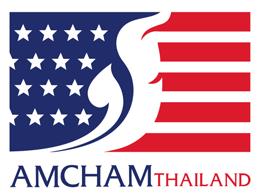

THAI-AMERICAN BUSINESS
THE NEW MANDATE FOR WORKFORCE TRANSFORMATION
STRENGTHENING LEADERSHIP AND LEARNING TOGETHER
THAILAND: AN EMPLOYEE ENGAGEMENT SUCCESS STORY
AMENDMENT ON FOREIGN INCOME REMITTANCE



THAI-AMERICAN BUSINESS
THE NEW MANDATE FOR WORKFORCE TRANSFORMATION
STRENGTHENING LEADERSHIP AND LEARNING TOGETHER
THAILAND: AN EMPLOYEE ENGAGEMENT SUCCESS STORY
AMENDMENT ON FOREIGN INCOME REMITTANCE

Help your teams build practical skills and cloud expertise critical to your organization. Over 600 digital courses and curated learning plans, along with interactive, hands-on training, provide engaging learning experiences that span more than 30 technical domains and all skill levels.
Build cloud skills at scale with AWS Skill Builder, the online learning center built by AWS experts
• Self-paced labs with AWS Builder Labs
• Expert AWS instructor-led training - on demand with AWS Digital Classroom
• Game-based learning with AWS Cloud Quest and AWS Industry Quest
• Use case challenges with AWS Jam
• Exam preparation for AWS Certification
Top 5 benefits of AWS Skill Builder for Teams
1. Accelerate business transformation
2. Encourage hands-on experience
3. Develop expertise in key roles and industries
4. Motivate teams with collaborative learning and friendly competition
5. Fast-track career development for team members

eBook: Build Cloud Expertise and Transform Your Business
Discover how empowering your teams with cloud skills can drive innovation.

Learn how to maximize your cloud investment by upskilling your workforce with diverse training and learning experiences.
Download the eBook › Watch the demo ›
We’re not authors, but we help our clients shape their businesses’ financial stories.
We’re not architects, but we help our clients build stronger businesses.
We’re not an airline, but our network connects global businesses in nearly 180 local markets.

but we help our clients digitally transform their businesses.
2025 Corporate Impact Awards Information Session & Connecting for Corporate Impact
Financial Mechanism to Promote Sustainable Business Practices
The Future of Work: How Young Professionals Can Lead with AI
Thailand & ASEAN Automotive Market Update
Joint AMCHAM Thailand Foundation (ATF) & Naresuan University: Virtual Information Session

From platforms that screen over half of the world’s blood supply, to wearable sensors that track glucose levels without blood, life-changing technology from Abbott helps people live healthier, fuller lives.
DIAGNOSTICS | MEDICAL DEVICES | NUTRITION | PHARMACEUTICALS

AMCHAM BOARD OF GOVERNORS 2025
PRESIDENT
Chatit Huayhongtong, Chevron
VICE PRESIDENTS
Wiyada Srinaganand, 3M Thailand
Ornkanya (Mook) Pibuldham, Bank of America N.A.
Peerasak Gamonsugosol, Honeywell Systems
Sondra Sutton Phung, Ford Motor Company
TREASURER
Simon Denye, Harmless Harvest
SECRETARY
Ririnda Tangtatswas, Minor International
GOVERNORS
Narumon Chivangkur, Citibank
Raymond Deidrick, Ingredion
Winnie Wong, Mastercard
Asama (Prae) Dumrongmongcolgul, Meta
Mark Kuo, Pfizer Thailand
Norachet Saetang, Seagate Technology
John Evans, Tractus
Philip Bernard, Western Digital
EXECUTIVE DIRECTOR
Heidi Gallant
T-AB Magazine is a publication by
101 True Digital Park, Griffin Building, Level 12A, Unit No.12A-06, Sukhumvit Road, Bangchak, Phra Khanong, Bangkok 10260 Tel: +66 (0)2 119 3350 www.amchamthailand.com
Editorial Advisory Board: Heidi Gallant
Editors: Varsha Wadhwani Phenphitchaya Chapanon
Any opinions expressed in articles in this magazine do not necessarily reflect the views of the Chamber.
T-AB Magazine welcomes contributions from AMCHAM members. Articles may be reproduced with acknowledgement, except those taken from other sources.
Dear Members,
I hope all is well with you as we return from our summer holidays and gear up for a busy Q3 and Q4. At the August AMCHAM Board of Governors meeting, our leaders discussed the
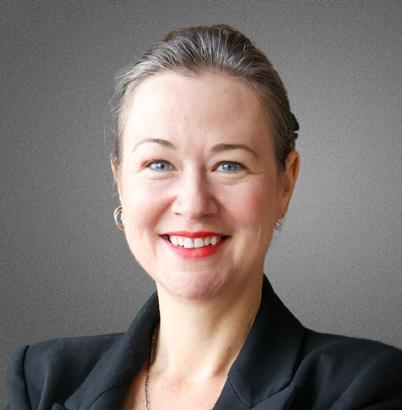
impact on business of increased tariffs and the border conflict, among other challenges. The AMCHAM team and I continue to welcome our members to share how these events are impacting their business.
We recently hosted our third tariff themed AMCHAM Business Today event, where members were invited to share their questions and concerns. The upcoming August Customs and Excise Council meeting is another opportunity where we are actively seeking your feedback. Alternately, you may contact our office directly for a conversation. Being informed on how our members are impacted, allows us to plan programing and advocacy for you that is relevant and timely.
In other news, the 2025 Corporate Impact Awards have now progressed to the judging stage, and members should save the date for the Awards Dinner on November 12th. The AMCHAM Thailand Foundation (ATF) is still accepting applications for the new cohort of scholarship recipients. We aim to increase the number of students receiving support this year from 92 students to 103. Thanks to our member’s generous contributions to the Gala earlier this year and the upcoming Charitee Golf Tournament, ATF fundraising has allowed us to expand our program, thank you members!
Finally, we will soon vote to elect board governors for the 2026/2027 term. As we lead up to the election period, I will be encouraging you to take part in this important part of AMCHAM membership. We will also soon be calling for interest in AMCHAM Committee and Council Leadership. These volunteers lead our advocacy and event initiatives. If you are interested in leadership at AMCHAM, please do not hesitate to get in touch with me for details on this commitment. I hope to see you soon!

Sincerely,
Heidi Gallant Executive Director



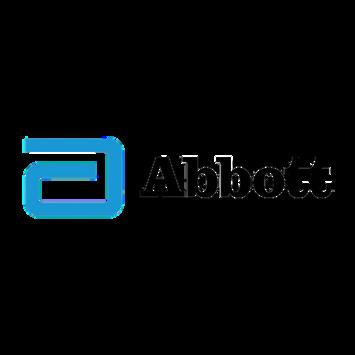
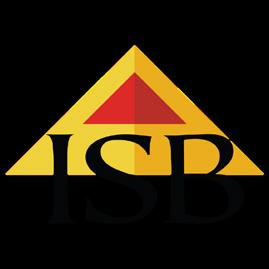
















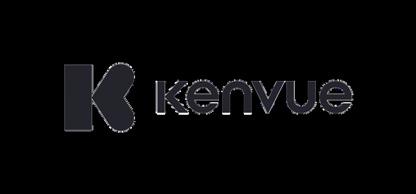



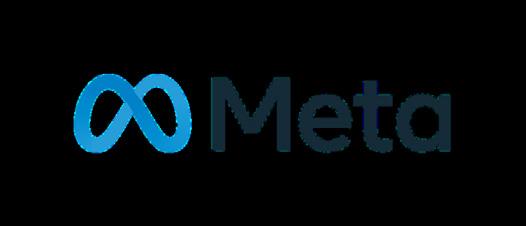
















By Chayanun Saransomrurthai and Benedict Vigers, Gallup

Rise in employee engagement among the largest globally in the past 15 years
Thailand’s employee engagement has surged over the past decade and a half, to a larger degree than most countries globally. Between 2022-2024, employee engagement reached 33% in Thailand, more than doubling from 14% in 2010-2012, when Gallup first took the pulse of Thai workplaces.
This increase of 19 percentage point ranks among the sharpest worldwide during the same period, statistically tied with Mexico and India (both +21 points), Iraq (+20 points), Indonesia (+19 points), and Albania (+18 points).

Decades of Gallup research shows employee engagement is one of the most powerful predictors of organizational performance, employee wellbeing, and workplace culture. It reflects whether employees are psychologically committed to their work and willing to go above and beyond in their roles. It is captured through understanding the core emotional expectations every employee has of their workplace. At 33% engagement, workers in Thailand are significantly more likely to be engaged than the global average of 21%.

Thailand’s rise in employee engagement over the past decade and a half has been steady. Despite a few peaks in 2016 and 2019, engagement has trended upward consistently for the past decade. During this time, the proportion of Thai employees who are not engaged in their jobs has fallen from 84% to 61%.
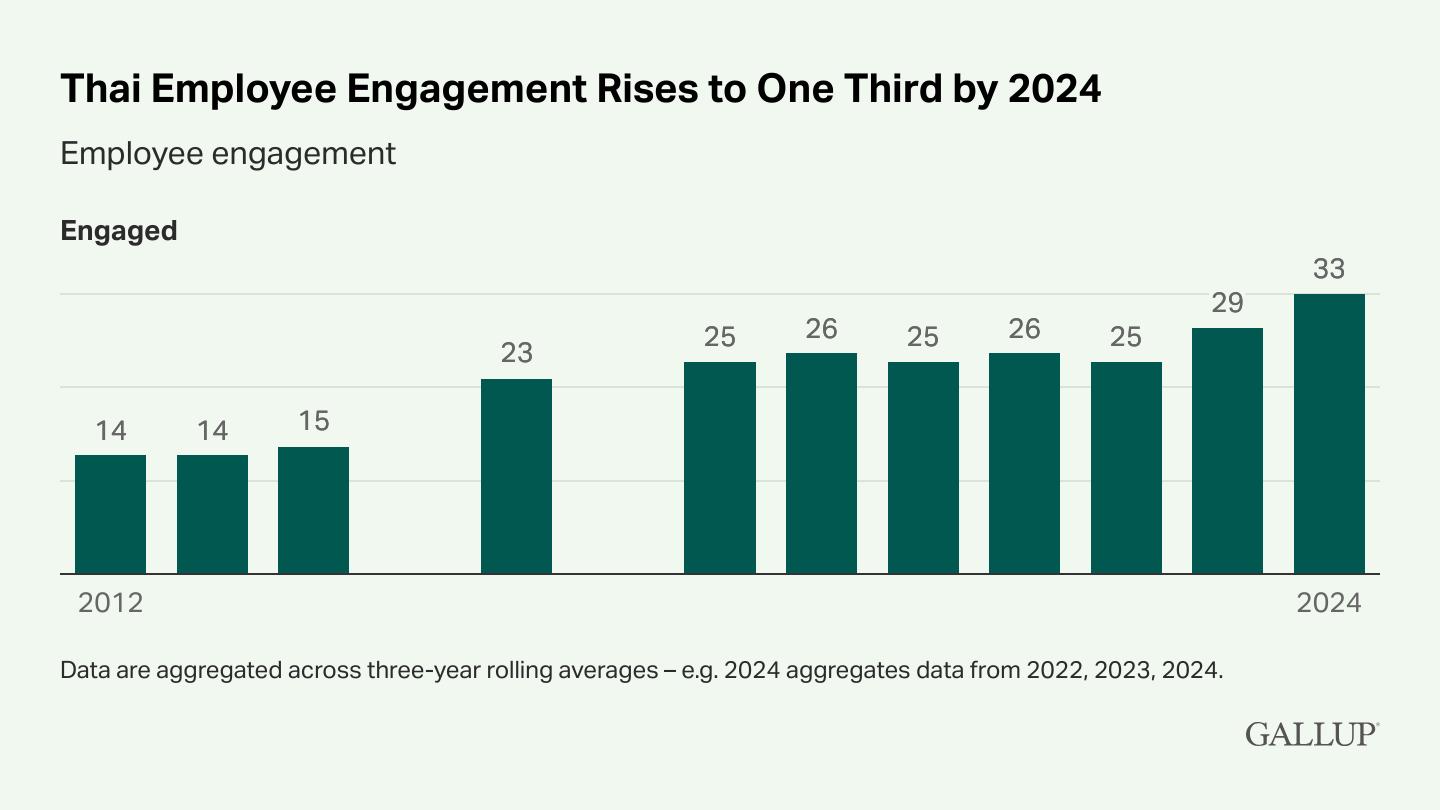
Workers in few countries globally reported higher levels of employee engagement than Thailand in 2024, which featured in the top 15 countries globally on this measure. In Southeast Asia, only the Philippines ranked higher with an engagement rate of 38% compared to Thailand’s 33%. In the neighborhood, one in four employees are engaged in Indonesia (27%), Laos (26%), and Malaysia (25%), while engagement levels are significantly lower in Cambodia (14%), Singapore (14%), and Vietnam (11%).
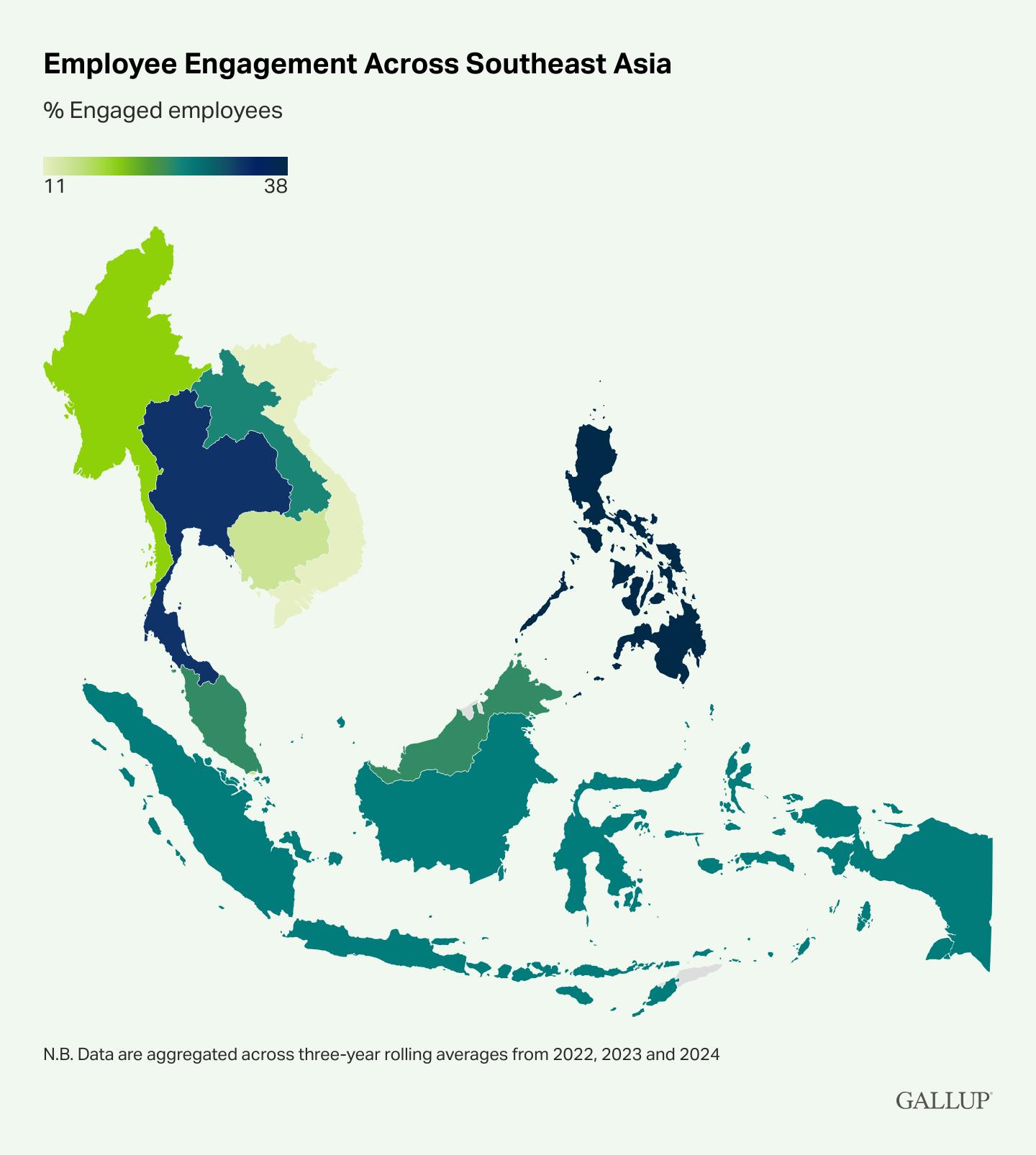
While the Philippines has slightly higher levels of engagement than Thailand, it has experienced far less growth over time, averaging 34% engagement between 2012-2024. Thailand has closed the gap on the Philippines in terms of employee engagement,
and for the first time on record both nations now score notably above the rest of Southeast Asia.
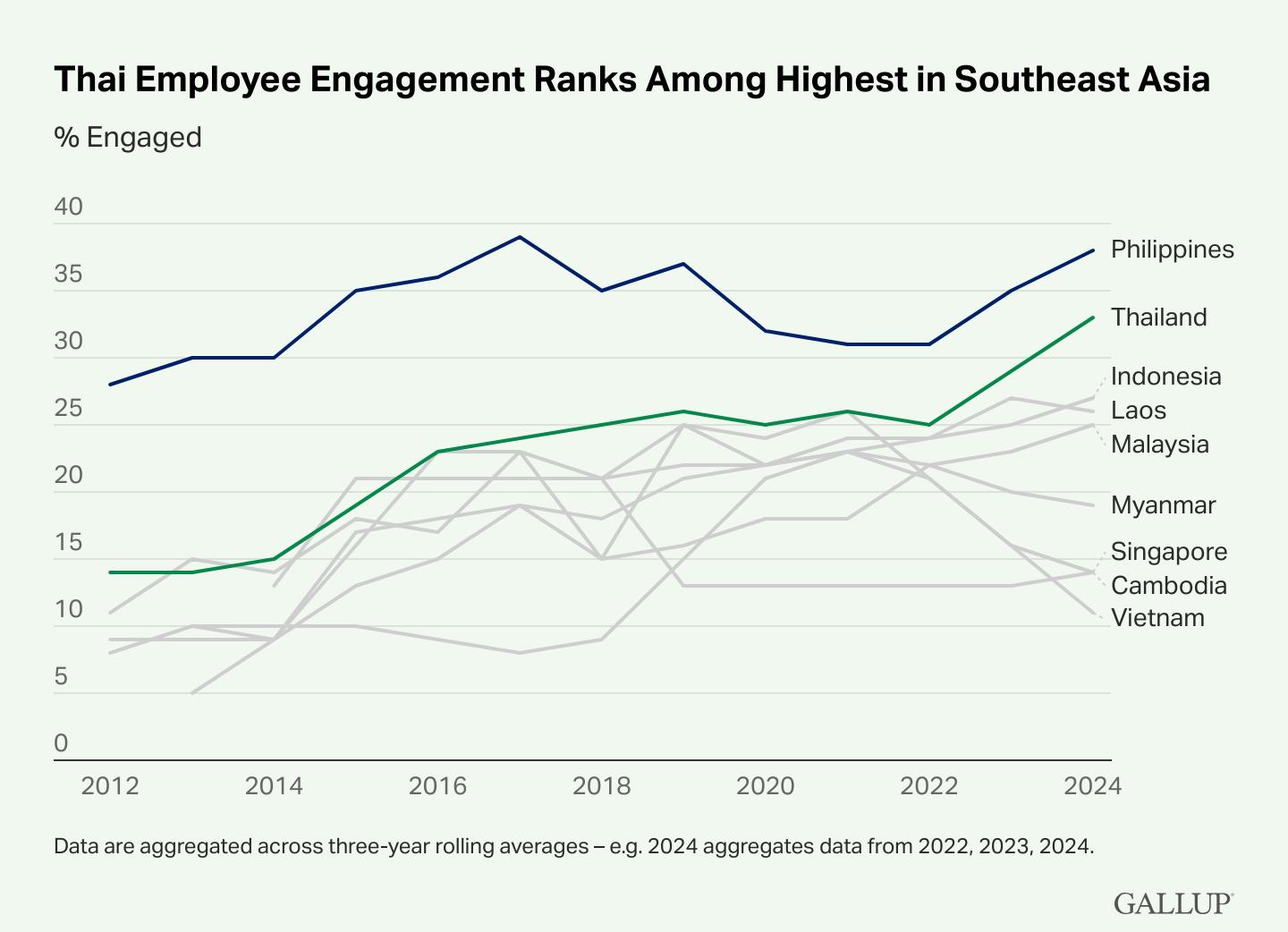
While Thailand’s leap in employee engagement is striking, it did not occur in a vacuum. The country's workforce experienced these improvements against a backdrop of fluctuating job market optimism.
In 2024, over half (54%) of full-time employees in Thailand said that it was a good time to find a local job. For much of the 2010s, job optimism in Thailand hovered near the high of 69% in 2012. It dropped to record lows during Covid-19, when just over one in four employees (26%) felt optimistic about their local job markets. Perceptions recovered as the pandemic subsided, reaching 60% in 2023 before dipping slightly the following year.
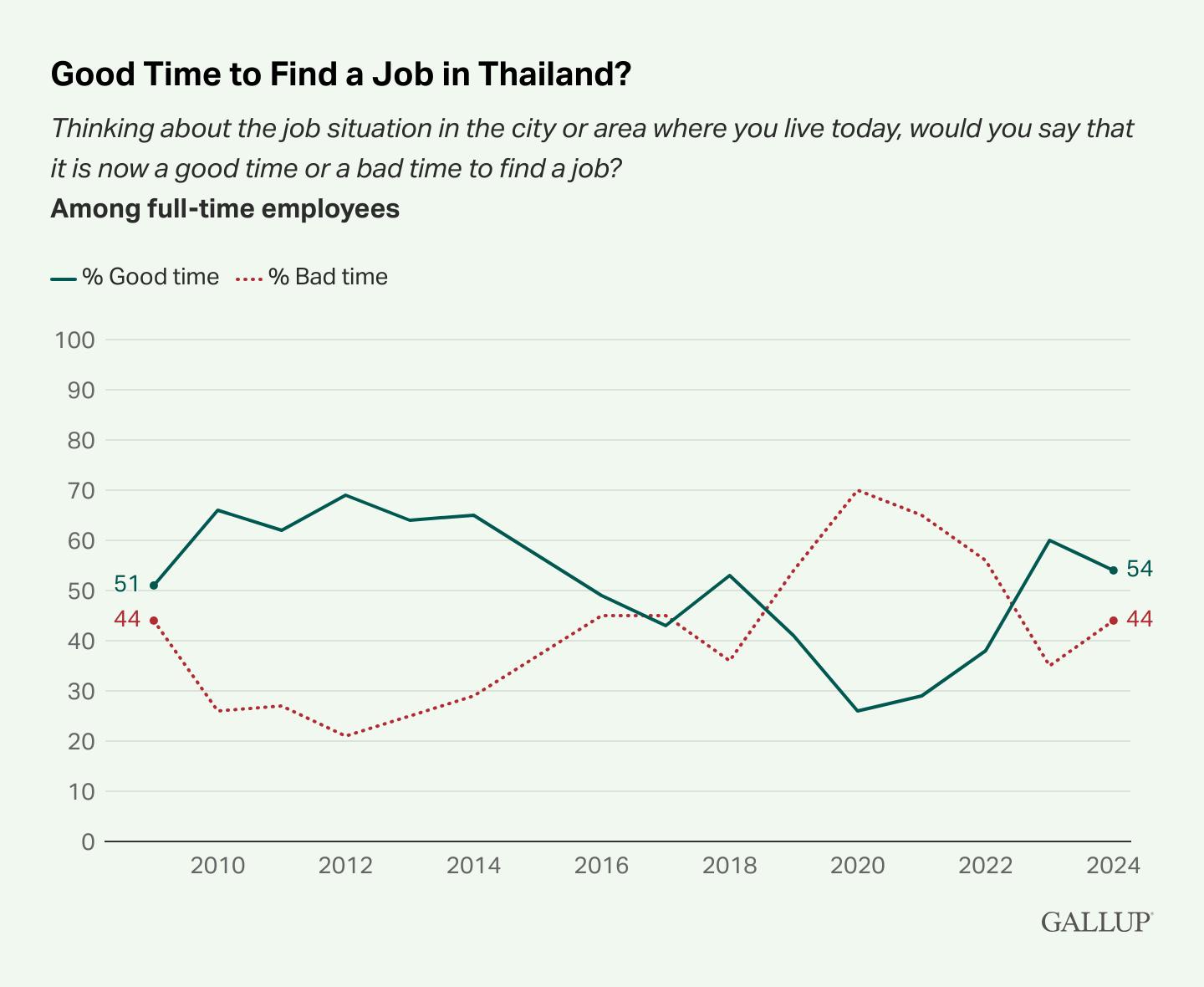
This softening trend suggests that while broader job market perceptions have not fluctuated over the last decade and have not fully recovered to the highs of the early 2010s, Thai workplaces have continued to focus on creating engaging workplaces, more effectively than ever before.
As employee engagement levels continue to rise in Thailand, it is a call to action for leaders in organizations. Understanding and improving engagement is no longer optional – it is essential for retention in a competitive job market.
Gallup research shows that up to 70% of the variance in team engagement can be attributed to the immediate manager. Supporting and developing managers has to be an important focus area for organizations to manage their productivity and growth.
Thailand stands out – both regionally and globally –for its high overall levels of employee engagement, and its steady and sustained increase over time. While there are many positives, it remains true that most Thai employees are still not engaged at work, costing the Thai economy more than 1.2 trillion baht, or 7% of its GDP, in lost productivity. Despite recent successes, this shows how much more remains to be written about the Thai success story.
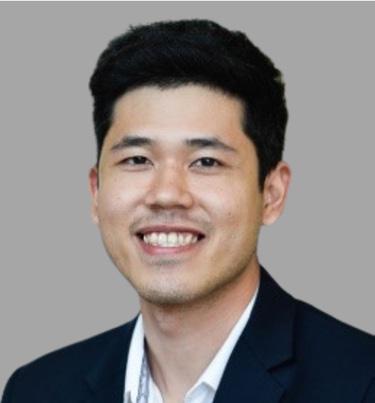
Chayanun Saransomrurtai is a senior regional research director at Gallup, overseeing Gallup’s global research across more than 20 Asia Pacific countries and advising clients on analytics and insights.

Benedict Vigers is a senior global news writer at Gallup. In his role, he consults with clients to analyze global research and strategically communicate with a variety of audiences, including policymakers, academics, private stakeholders and the public.

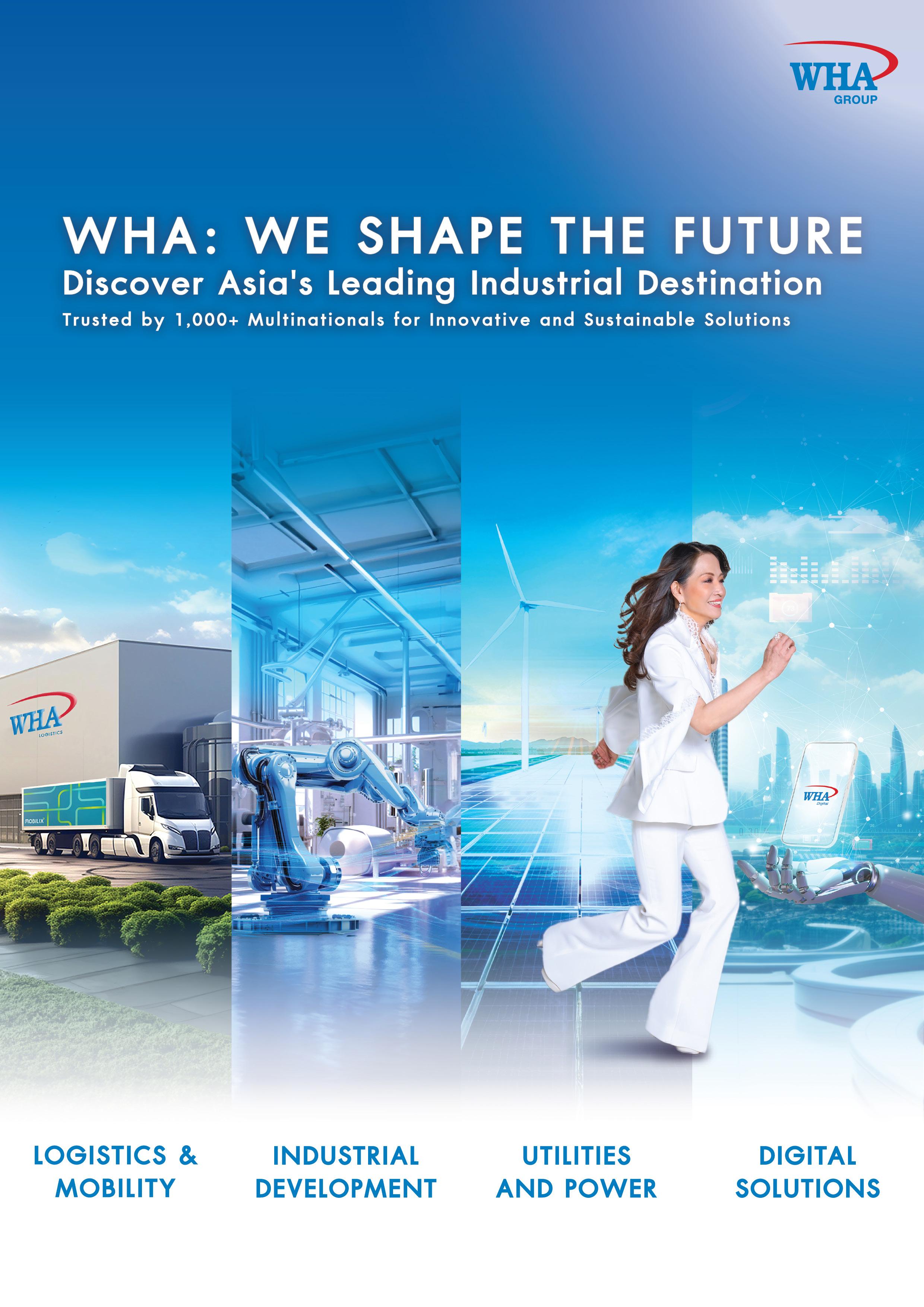
By Luke Jones, Bangkok Patana School

In any thriving organization, leadership cannot operate in silos. Educators know the importance of a collective approach, where voices from across the school community come together to shape and improve practices. Collaboration lies at the heart of that effort, it empowers us to share ideas, tackle challenges, and drive innovation.
One constant remains clear: collaboration among leaders and teachers is not just an ideal; it is an essential driver of progress. When we work together, we elevate each other and, more importantly, we elevate the organization.
One of the most exciting aspects of collaboration is seeing how new ideas are embraced and refined collaboratively. This year, many educators have been actively exploring how artificial intelligence might influence and transform the
way we work. As AI continues to evolve rapidly, adapting thoughtfully will require resilience and a collaborative mindset.

To nurture a truly collaborative culture within any organization, the Seven Norms of Collaboration can serve as powerful guiding principles. Here is how these norms can enhance collaborative efforts across the board:
1. Pausing: In a fast-paced world where quick responses are often valued, it is amazing what happens when we pause before jumping in. Pausing gives people space to think and ensures that everyone has a chance to contribute thoughtfully. Often, the most important insights come after that little moment of reflection.
2. Paraphrasing: Effective collaboration often involves checking for understanding, and that is where paraphrasing comes in. By restating what someone has said, we show we are actively listening and help clarify meaning. This technique builds trust, which is essential in both staff interactions and classroom discussions. It reassures speakers that their points are valued and understood, reinforcing a culture of respect.
3. Posing Questions: A well-placed question can unlock a new perspective. Open-ended questions like "What might be another approach?" can transform the way we tackle challenges. Collaboration does not always mean we all agree on everything. Sometimes, it means debating whether the coffee should be fair trade or just strong enough to get us through the day!
4. Putting Ideas on the Table: True collaboration means all ideas - big and small - are welcome. In an open discussion, nothing should be off-limits. Brainstorming without judgment leads to more creative ideas. However, balance is key. We want everyone to feel comfortable, so we invite ideas with a sense of curiosity and not pressure.
5. Providing Data: Effective collaboration often means making decisions based on good information. Informed decisions are better decisions. Whether it is leveraging academic performance data or gathering input from student councils, having relevant information helps us make choices that are rooted.
6. Paying Attention to Self and Others: This one is about being aware of how we are showing up in conversations. It is easy to focus solely on our own ideas but paying attention to the energy in the room is crucial. Is someone holding back? Are we dominating the discussion? Leaders aim to keep the group’s energy positive and productive, ensuring that the flow of conversation supports the whole team.
7. Presuming Positive Intentions: Finally, we must trust that everyone is coming into the conversation with good intentions. When we assume that, it becomes easier to navigate disagreements and find common ground. Collaboration is all about learning together and not about being right.
By tapping into the power of collaboration, an organization can keep moving forward. Looking ahead, collaboration will remain one of the core pillars of leadership. It is not just a leadership style; it is a mindset that values the input of every individual, believing that together we can achieve more.
To move forward, invite people from all parts of your organization - from leaders to customers - to think about how they can contribute to the organization’s collective success. Sharing ideas and asking thoughtful questions creates a culture of continuous growth and enhances the learning experience for everyone.
In an ever-evolving educational landscape, with emerging technologies like artificial intelligence, it is vital that we adapt and grow. By collaborating and learning from one another, we can stay ahead and continue improving the way we teach and learn.
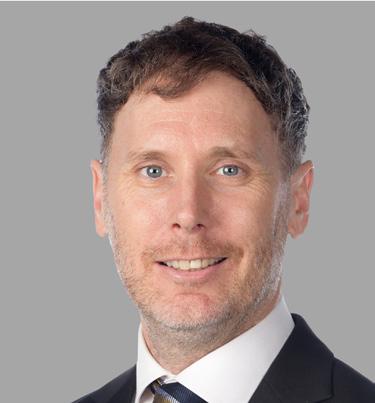
Luke Jones serves as Secondary Vice Principal for Curriculum and Assessment at Bangkok Patana School. He has a background in Business Studies education in international schools.
“Technologies cannot inspire people, but people inspire people, and it is that inspiration that drives exceptional performance.”
How is the concept of human capital evolving in the era of digital transformation and energy transition?

Balancing industrial growth with environmental preservation is crucial for a developing country like Thailand, particularly in the areas of climate change and waste management. It is essential to conserve and nurture the environment, as I believe people are the most important asset in every organization and will continue to be, despite the advancement of future technologies such as digital transformation and energy transition. I have learned this through my thirty plus years in business. Technologies cannot inspire people, but people inspire people, and it is that inspiration that drives exceptional performance. It is how people work together as a team that delivers outstanding outcomes. Yes, technology will change the way we work. Technology improves efficiency and
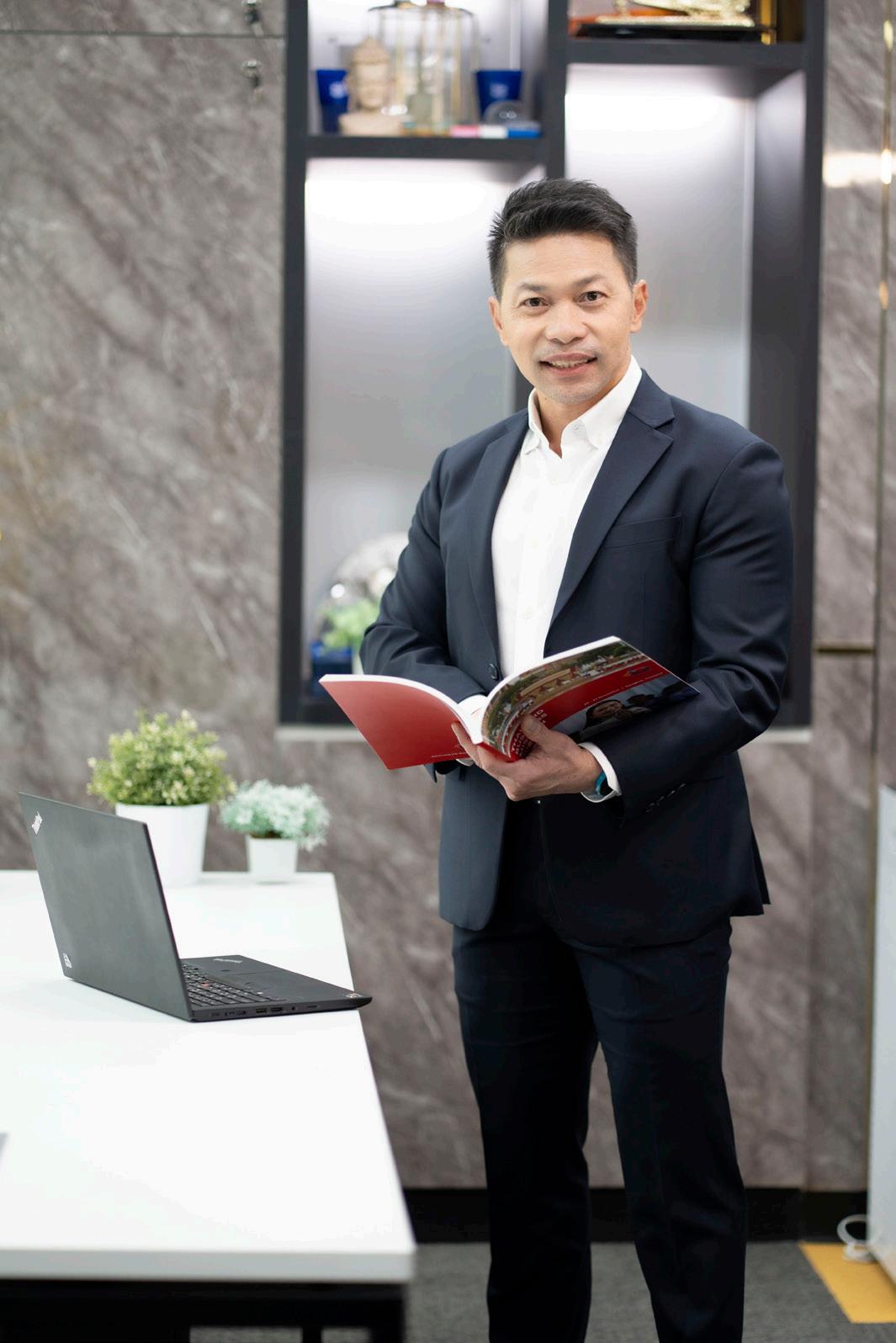
accuracy, but it cannot replace people. I have witnessed incredible outcomes when people collaborate - motivated and inspired.
What is the key to building a workforce that is both technically skilled and adaptable?
The world is changing all the time. Our ability to adapt to changes will help us stay above the competition. This is not easy. People tend to continue their established habits, keep doing what they have been doing. However, we need to remember that our competitors are always moving. If we stay still, we will be left behind.
Creating an organization that keeps changing and moving forward is needed to win. As leader of a large organization, I always encourage my people to adopt a growth mindset, recognizing that there are always opportunities for improvement and empowering them to drive necessary changes. Leaders play a critical role in creating the necessary culture and work processes for their organization to admire changes and continuously improve.

How is leadership evolving to shape futureready talent?
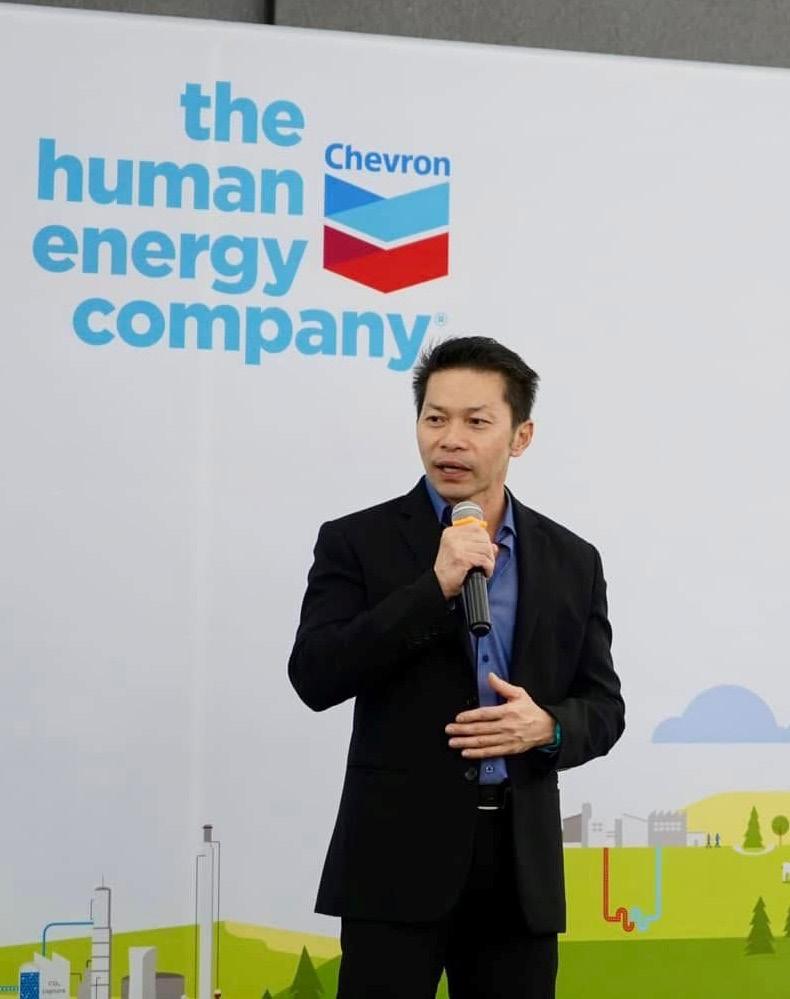
As leaders of an organization, we must be able to inspire our workforce, set challenging and aspirational goals, foster collaborative crossdisciplinary teamwork, remove barriers, and
coach people. From the workforce’s perspective, motivation comes when they are given meaningful responsibilities - work that creates value and aligns with their desired personal development. Leaders need to ensure that their employees perceive their contributions as valuable to the team, the organization, and their own professional development. I believe this is an important role of leadership. Competition is going to get harder and harder. It is the organization that can inspire and engage their workforce that wins.
“It is the organization that can inspire and engage their workforce that wins.”

How can companies embed Diversity, Equality, and Inclusion (DEI) into long-term workforce development beyond hiring?
We need to recognize why DEI is so important. It is how people work together as a team that drives results. Individuals usually bring different backgrounds, experiences, perspectives, and skill sets. Being able to combine these diverse aspects together when people work as a team determines the level of achievement. In DEI, one plus one
can be greater than two. DEI allows different opinions to be shared and respected, new ideas generated, and better results achieved. Creating a culture of DEI starts with the leadership, leaders like me, and must be embedded at all levels in the organization. Leaders have a role to set a tone for the organization, provide training, coach and provide feedback, and build a team environment to establish DEI workplace.

What does a healthy, modern workforce ecosystem look like, and how can cross-sector collaboration strengthen it?
“The more we can be flexible with how work gets done, the more we can drive a company’s potential.”
As I progressed in my career, I found the business problems I faced were getting increasingly complex. To solve those problems, I needed to be able to leverage the capabilities and skills of other people, not just myself. Building relationships and developing the ability to influence others became a critical skill I needed for my success. I think the same happened in business. No single company has all the capabilities it needs to be successful. Developing partnerships and leveraging other companies’ capabilities is essential, particularly in the modern and more competitive world. In addition, with the help of digital technologies today, work can be done from anywhere, and the world is truly interconnected. The more we can be flexible with how work gets done, the more we can drive a company’s potential.
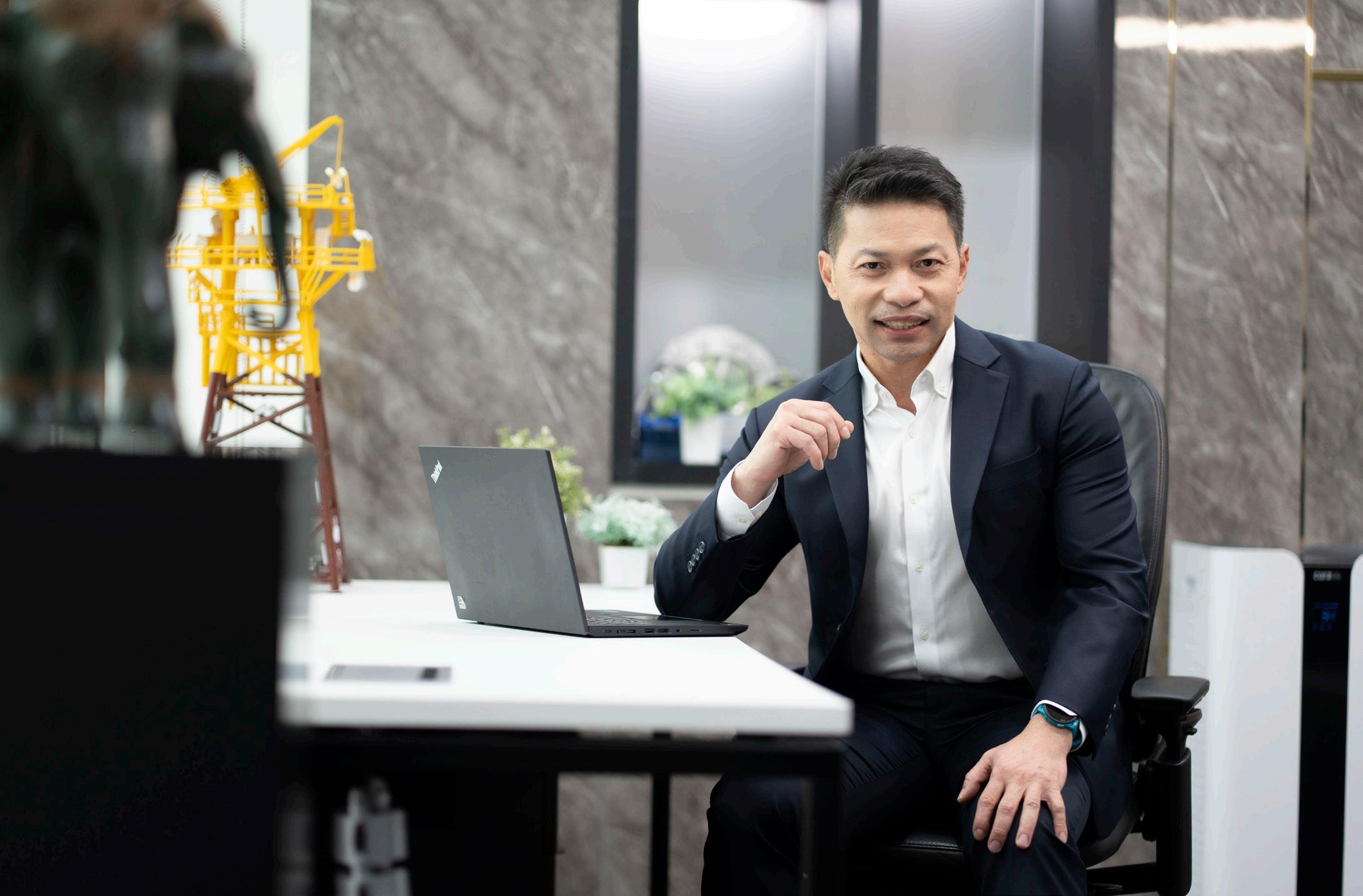
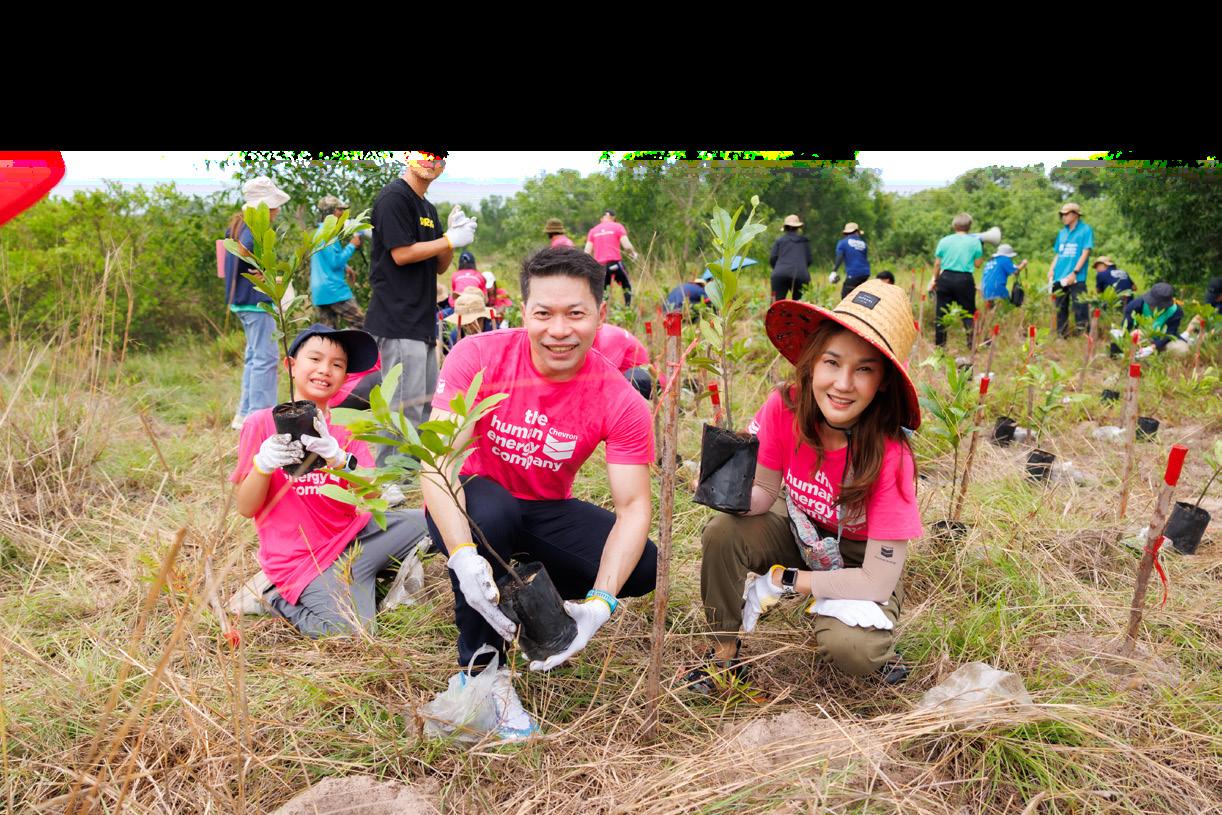







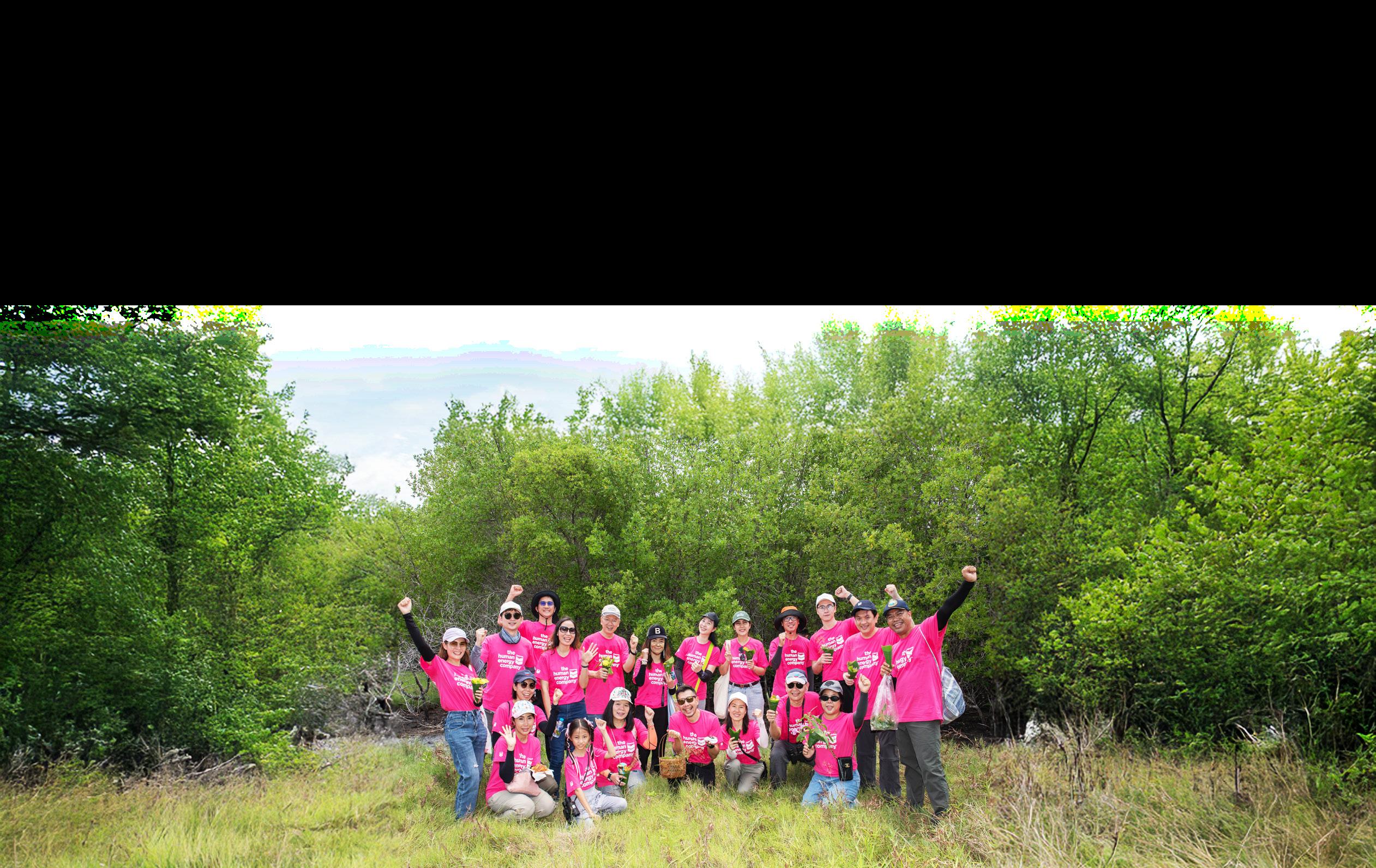

By Dusita Khanijou and Suruswadee Jaimsuwan, Tilleke & Gibbins

In 2025, the minimum wage rate in Thailand was increased twice – on January 1, across all provinces in Thailand, and subsequently on July 1, for Bangkok, as well as for type 2, type 3, and type 4 hotels under the Hotel Act and entertainment establishments under the Entertainment Places Act nationwide. For Bangkok, the minimum wage rate rose from 372 baht from January 2025 to 400 baht per day by July 2025 – this is an increase of over 7.5%. The rationale for increasing the minimum wage rate includes addressing the higher cost of living, inflationary pressures, and broader economic and social conditions. It also aims to improve workers’ quality of life while also maintaining business sustainability. However, this shift is not without its consequences. A higher minimum wage rate inevitably raises labor costs, prompting businesses, particularly those in labor-intensive industries, to reevaluate their workforce strategies.
In response, many companies may turn to artificial intelligence and automation to reduce reliance on human labor. These technologies help maintain productivity and control costs by streamlining operations, reducing headcount, and reallocating human resources to roles that require creativity or complex problem-solving, which are areas that are less easily automated.

The transition to automation presents its own challenges. It requires investment in technology and infrastructure and may necessitate retraining or upskilling existing employees to adapt to new roles. Employees who cannot be retrained, or whose roles become obsolete due to technological advancements, may face redundancy. This impact could be especially significant on low-skilled workers, who may find limited opportunities in an increasingly automated labor market.
Thai labor law contains a specific provision for cases where employers terminate employees due to the reorganization of operations, production line, sale, or services due to the adoption or change of machinery or technology that leads to a workforce reduction.

In such cases, where an employer terminates employees due to reorganizing or improving its work units or services arising from the utilization of technology, employers must provide employees with advance notice of termination at least 60 days prior to the effective date (or pay in lieu if insufficient notice is provided), statutory severance pay which ranges from 30 days to 400 days’ wages depending on the employee’s length of service, special severance pay if the affected employees have worked consecutively for more than six (6) years (with a cap that the total special severance shall not exceed 360 days’ wages), as well as other payments due upon termination, such as paying out unused annual leave days.
In addition, employers are required to notify Labor Inspection Officials of the termination date, reasons for termination, and the names of the affected employees, at least 60 days in advance, or face a fine.
Ensuring Fair Termination Practices and Robust Evidential Defenses

In Thailand, terminated employees may file unfair termination claims, even if the employer has made all statutorily required payments. The statute of limitations for such claims is ten years from the effective date of termination.
If the court finds that the termination was unfair, it may order the employer to reinstate the employee (if requested), or to pay damages for unfair termination.
Given the potential risk of unfair termination claims, the long prescription period, and the financial implications for employers if they are required to pay damages, it is crucial that employers maintain evidential defenses to demonstrate fair termination. Examples include:
1. Justification for restructuring due to the adoption of new technology.
2. Rationale for selecting specific employees for termination, with evidence that their roles became redundant or incompatible with the new technology.
3. Fair and consistent criteria used in the selection process, with documentation showing that terminated employees were less suited to the new technology compared to retained employees, based on job descriptions, skills, abilities, and performance.
4. Efforts to reassign affected employees within the organization.
5. Support provided to employees, such as job placement assistance or training to enhance employability.
As Thailand continues to adjust its labor policies in response to economic and technological shifts, businesses must remain agile yet compliant. The recent minimum wage increases reflect a broader commitment to improving
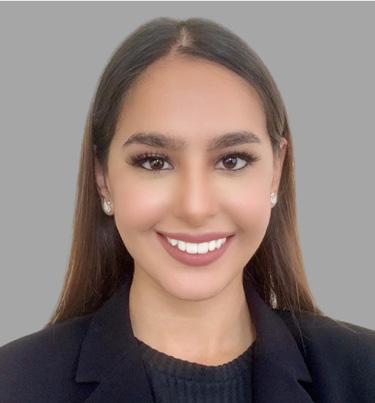
Dusita Khanijou is a senior associate specializing in non-contentious employment law practice. Regarded as an employment law specialist, she was recognized in the International Employer Lawyer’s Tomorrow’s Leaders 2024 publication—the only listed expert in Thailand.
worker welfare, but they also present operational challenges. Employers considering workforce restructuring must strike a balance between innovation and cost-efficiency while upholding legal responsibilities and safeguarding their reputation. By proactively documenting decisions and maintaining fair employment practices, businesses can navigate these changes with confidence and integrity.

Suruswadee Jaimsuwan, a senior litigator and former Thai judge, advises on civil and criminal cases. Recognized as a “Litigation Star” by Benchmark Litigation, she excels in courtroom advocacy and strategic legal solutions.
Click here to register
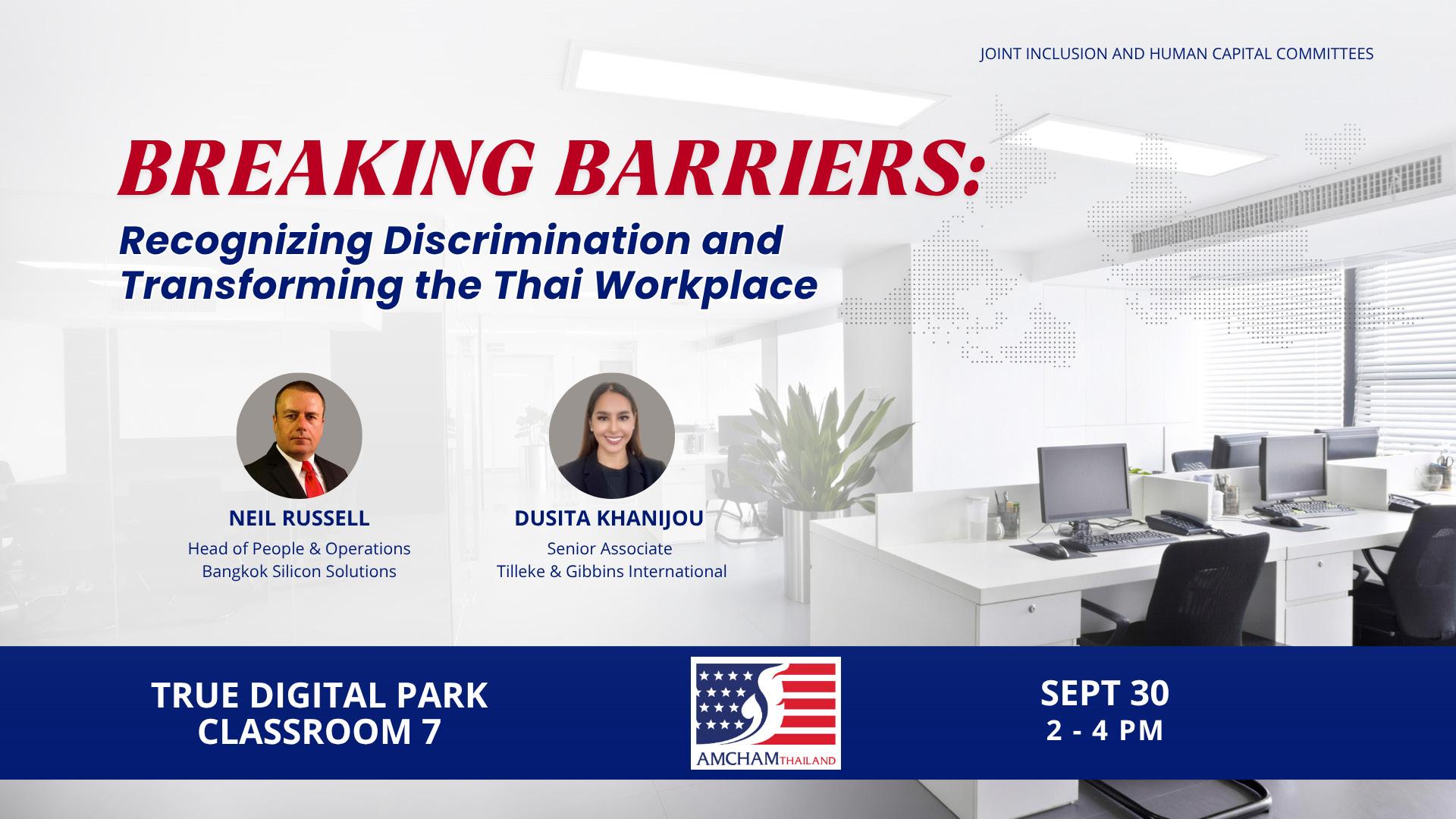

By Picharn Sukparangsee, Bangkok Global Law

The Revenue Department of Thailand is in the process of drafting a new law to ease tax burdens on foreign income remitted to the country. This initiative aims to incentivize Thai tax residents to bring overseas earnings back into Thailand to stimulate domestic investment.
Under the current legal framework, which took effect on January 1, 2024, Thai tax residents are subject to personal income tax on foreignsourced income brought into Thailand in any year, regardless of when the income was earned. The applicable tax rates are progressive, ranging from 5% to 35%.
This change marks a significant shift from the previous legal basis. Previously, only foreign income earned and remitted to Thailand within the same tax year was subject to Thai personal income tax. Income earned abroad and repatriated in a later year was not taxable.
However, the Revenue Department clarified that foreign income earned before January 1, 2024, and remitted to Thailand after that date remains subject to the previous rules, meaning such remittances are not taxable if brought in after the year of earning.
To align the tax regime with economic policy objectives, the Revenue Department is drafting a royal decree to amend the current criteria. Under the proposed rule, Thai tax residents who earn income abroad will be exempt from personal income tax if the foreign-sourced income is remitted to Thailand within the year, it was earned or in the following year.
For example, if a tax resident of Thailand earns income overseas in 2025 and brings it into Thailand in 2025 or 2026, that income would be exempt
from tax under the proposed law. However, if the income is remitted after 2026, it will be taxed under the standard rules.
This amendment is designed to encourage the timely repatriation of funds and support domestic investment, particularly at a time when economic recovery and capital mobilization are key government priorities.
Thai tax residents -defined as individuals who spend 180 days or more in Thailand during a tax year - are subject to personal income tax on both domestic and foreign-sourced income.
According to a source from the Finance Ministry, the residency principle remains a cornerstone of Thailand’s personal income tax system. However, the rigid application of this rule in recent years has inadvertently discouraged some Thai nationals who invest or work abroad from remitting income back into the country.
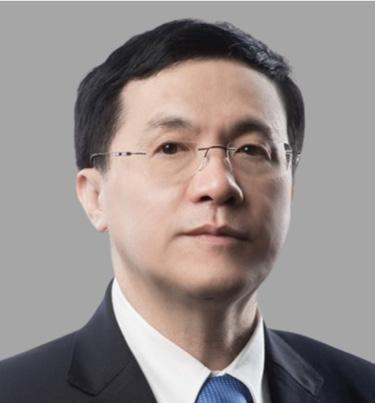
Picharn Sukparangsee is a founding partner of Bangkok Global Law. He is one of the leading lawyers in Thailand for taxation, corporate & commercial law, M & A transactions, securities, banking and finance laws.

Enjoy a peace of mind while shopping overseas or online with Mastercard transaction alerts to notify you whenever your card has been used so you are update at all times.

Scan to experience the sound of confidence
®

Dear Members,
Since the cabinet reshuffle, AMCHAM has extended congratulatory letters and meeting requests to newly appointed ministers and highlevel officials. These engagements help us connect with government leaders and represent our members' interests. We continue to follow up on ongoing issues requiring clarification, including the Global Minimum Tax (GMT), perfume tax reform, the Draft Climate Change Act, and regulations on foreign-sourced personal income. These engagements will continue throughout the remainder of the year.
Thailand has issued several new Royal Gazette notifications related to digital platform regulations. These updates supplement the existing Royal Decree on the Operation of Digital Platform Service Business Subject to Prior Notification, and amendment to the Emergency Decree on Measures for the Prevention and Suppression of Technological Crimes. These actions aim to strengthen cybercrime prevention and enhance the regulatory framework for digital platforms.
AI regulation is also emerging as a key government priority. The recently established National AI Committee, chaired by the Prime Minister, aims to drive AI governance and development. In support, our joint Government Affairs Council and the Digital Economy Committee working group has submitted a letter to the committee, expressing interest in helping draft balanced regulations that foster innovation while ensuring transparency, accountability, and fairness.
Our other councils are equally active. The Tourism & Hospitality Council, in collaboration with the Human Capital Committee, will host Building a Future-Ready Workforce for Thailand’s Tourism Industry. This initiative supports recommendations from the Tourism Council’s white paper and highlights workforce development for sustainable industry growth.
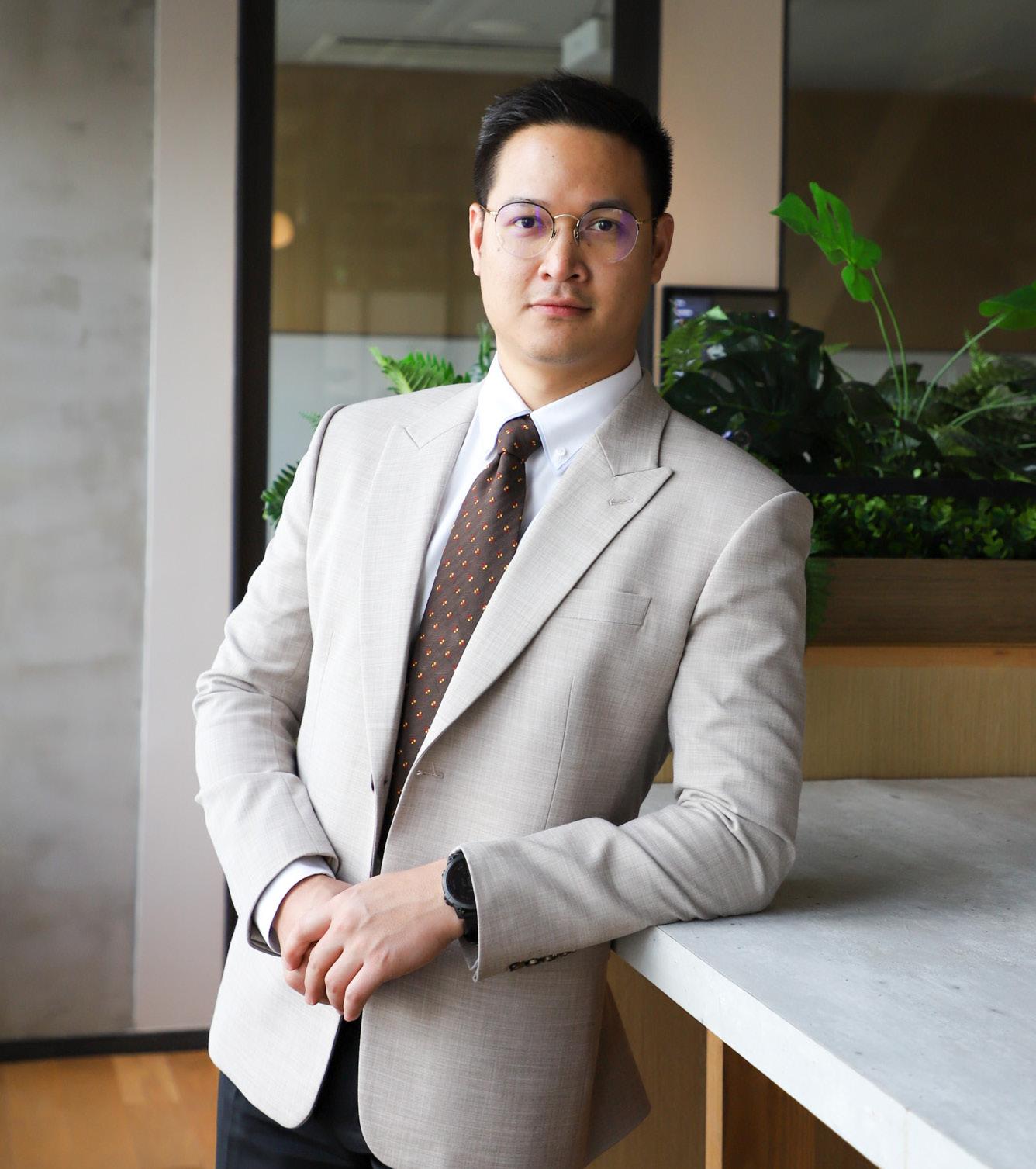
The Creative Economy Council will host a member luncheon on the untapped potential of Thailand’s film industry. With compelling investment incentives and regulatory flexibility, Thailand has become a hub for international productions such as The White Lotus, Jurassic Park, and the upcoming Alien: Earth (2025) series, filmed entirely in Thailand with an investment over 2 billion baht. The luncheon will highlight both economic impact and future opportunities in the creative sector.
These accomplishments reflect the dedication of our leaders and active member involvement. I encourage you to join a council aligned with your interests or contact our GA team to discuss any advocacy matters that are important to you. The team continues to cultivate meaningful relationships with key ministers and government agencies, who remain enthusiastic about engaging with AMCHAM.
Jen Meckhayai Government Affairs Director




Nathalita Poopirom is Vice President, Thailand BPI Site MD/GM, HDD Operations at Western Digital Storage Technologies Thailand. She also serves as a Co-Chair of the AMCHAM Environmental, Social, and Governance (ESG) Council.
What inspired you to take on a leadership role in AMCHAM ESG Council?
As a leader, I am committed to advancing sustainable growth and ethical leadership - both within our operations and across the business community. For me, ESG is not a side initiativeit is core to creating long-term value and earning trust as a responsible global company.
At Western Digital, we are honored to be recognized by Ethisphere as one of the World’s Most Ethical Companies and as the first company in Thailand certified by the World Economic Forum’s Global Lighthouse Network. These recognitions reflect our leadership in applying Industry 4.0 technologies to drive operational excellence and environmental stewardship. We are making strong progress toward our goal of achieving 100% carbon-free energy by 2030, powered by a culture that empowers employees to lead change from within.
As the newest member of the ESG Council, I am proud to join such a passionate and experienced group. I value the insights each member brings and look forward to contributing and learning. The Council is more than a forum - it is a platform for collective impact. Together, we can raise the bar for ESG leadership in Thailand and beyond.
How do you integrate ESG goals into your site’s daily operations?
ESG is built into how we run the business - not as a parallel track, but as part of our operational DNA. Our “Circularity in Action: From Supply Chain to Value Chain” initiative brings this vision to life - embedding environmental responsibility across our operations. For example, our “Healthy Food to Zero Waste” program reduces food waste, eliminates single-use plastics, and transforms canteen scraps into compost for local farms. Employees champion plastic upcycling by converting waste into useful products like bags and shirts, reducing landfill dependency and promoting circular thinking on the shop floor.

What makes these efforts meaningful is employee ownership. ESG is not policy-driven- it is peopledriven. We track progress through defined KPIs and a Social Return on Investment framework.
What strategies do you use to develop and retain high-potential talent in a fast-evolving tech environment?
People drive innovation and resilience. We are building a future-ready workforce through an “Agile, Adapt, Adopt” mindset - ensuring our people grow alongside the technology they help create.
We invest in upskilling across automation, data analytics, and AI, while fostering research partnerships with Thai universities. This keeps us at the forefront of innovation, while giving our teams the skills and confidence to lead transformation from within.
We create a culture where employees feel valued and inspired. This approach recently earned us recognition by the World Economic Forum as a Workforce of the Future -a reflection of our belief that empowered people do not just adapt to change - they shape it.

Meet Kanyawee "Yok" Pimpuru, a pioneering recipient from the first batch of AMCHAM Vocational Scholarships when the ATF Scholarship program expanded to vocational colleges in 2023. Yok has successfully transitioned into her current role as a Quality Control Officer in the food industry.
“I believe that there’s no such thing as 'I can’t.' We just need to keep practicing and improving ourselves.”
I am currently working at Ovo Foodtech, a company specializing in the production and distribution of pasteurized liquid eggs nationwide.
I chose to pursue a vocational program, which provides various career paths that are practical in real life. Although vocational education may not carry the same prestige as a career in teaching or earning a university degree for government service, it is nonetheless a valuable educational path that can lead to a better life.
I moved to Chonburi Technical College alone and worked while studying. It was extremely difficult, but I did my best and eventually graduated. The AMCHAM scholarship played a major role in my success. Without the scholarship, I might have given up and left school to work full-time. There were many challenges, and I relied on my capability, hard work, determination, and willingness to learn independently in order to succeed.
I first applied for the scholarship during a period of financial stress. Thinking, “Why not try? Whether I get it or not, at least I tried.” When I received it, I was overjoyed - I had never imagined it. It was the first scholarship I had ever received at the age of 18. I may no longer be eligible for future scholarships because I will not be pursuing further studies, but I am sincerely grateful. This scholarship gave me a new life and invaluable lessons. I am thankful to have found the AMCHAM Vocational Scholarship.
The path that AMCHAM gave me led to my completion of higher vocational education. for the scholarship funded for two semesters, and I worked additional expenses until graduation.
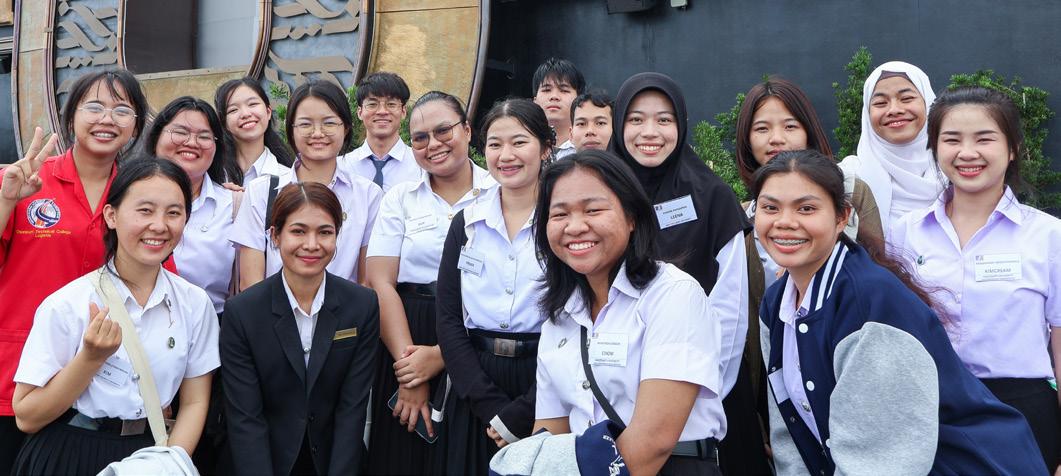
The experiences I gained from the Orientation and Career Camps were extremely valuable. I learned how to write an effective resume and apply for jobs in a way that highlights my skills and present myself confidently. I learned not to be afraid, to take chances, and to learn from both successes and mistakes.
I used the knowledge I gained from the AMCHAM Camp to prepare for my first job application after graduation. Though I was not selected on my first attempt, I was invited back for a second interview and was immediately offered the job. My communication skills and self-confidence helped me succeed. I believe that there is no such thing as “I cannot - we only need to keep practicing and improving ourselves.
This scholarship not only supported me financially but also nurtured my compassion. I have participated in volunteer activities in rural schools and even shared a part of my scholarship with children lacking educational opportunities. I introduced the AMCHAM scholarship to other capable but disadvantaged students. I would be honored to see this wonderful opportunity passed on to others and to welcome them into the AMCHAM Scholarship Student community and receive the same life-changing support I did.
I would like to express my deepest gratitude to AMCHAM ATF Coordinators Sheree and Pailin for granting me this opportunity and this scholarship. Thank you very much for giving me a new beginning.

www.aam.com/future

Hosts: Asama (Prae) Dumrongmongcolgul of Meta; Mark Kuo of Pfizer; and Philip Bernard of Western Digital
Event Highlights:
AMCHAM hosted the signature Governors’ Table, allowing attendees an opportunity to connect with fellow executives and AMCHAM Board Governors in a relaxed, leisurely atmosphere. The event took place at Kimpton Maa-Lai Bangkok, featuring an exquisite dinner with a splendid city view.

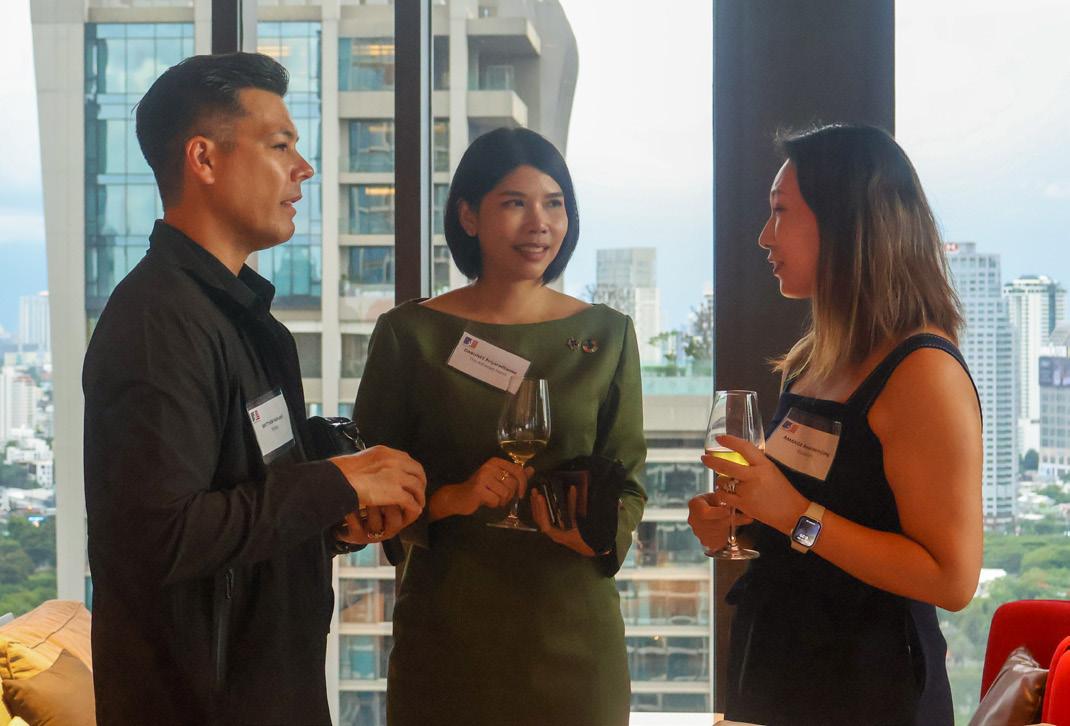
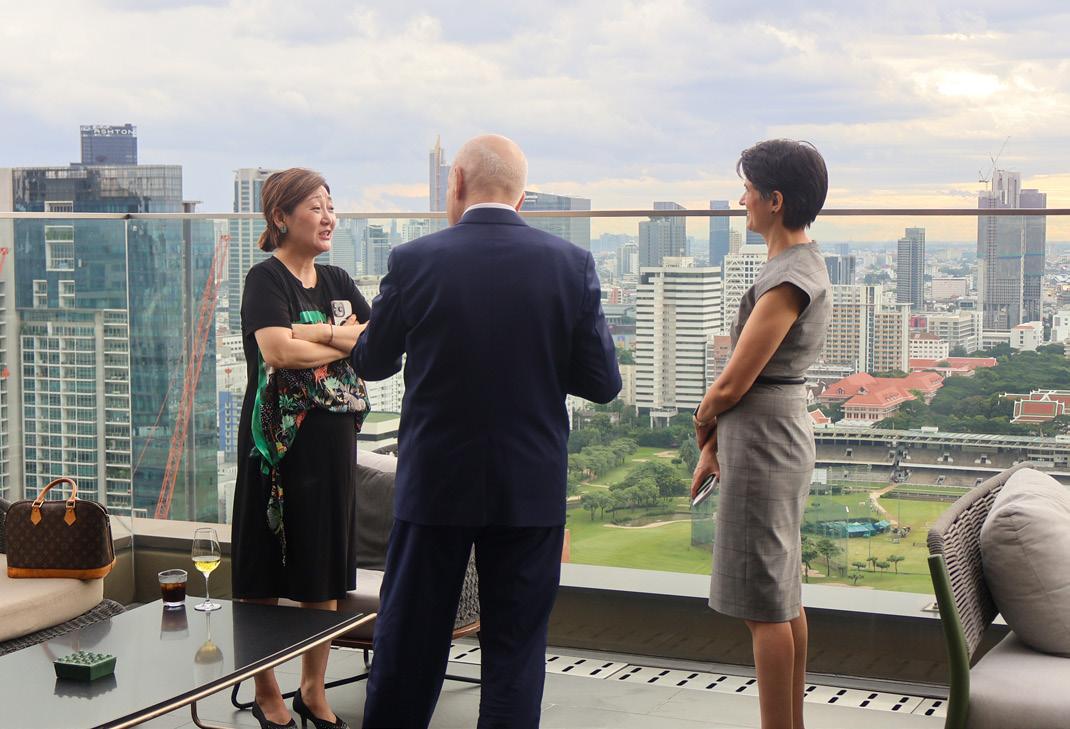

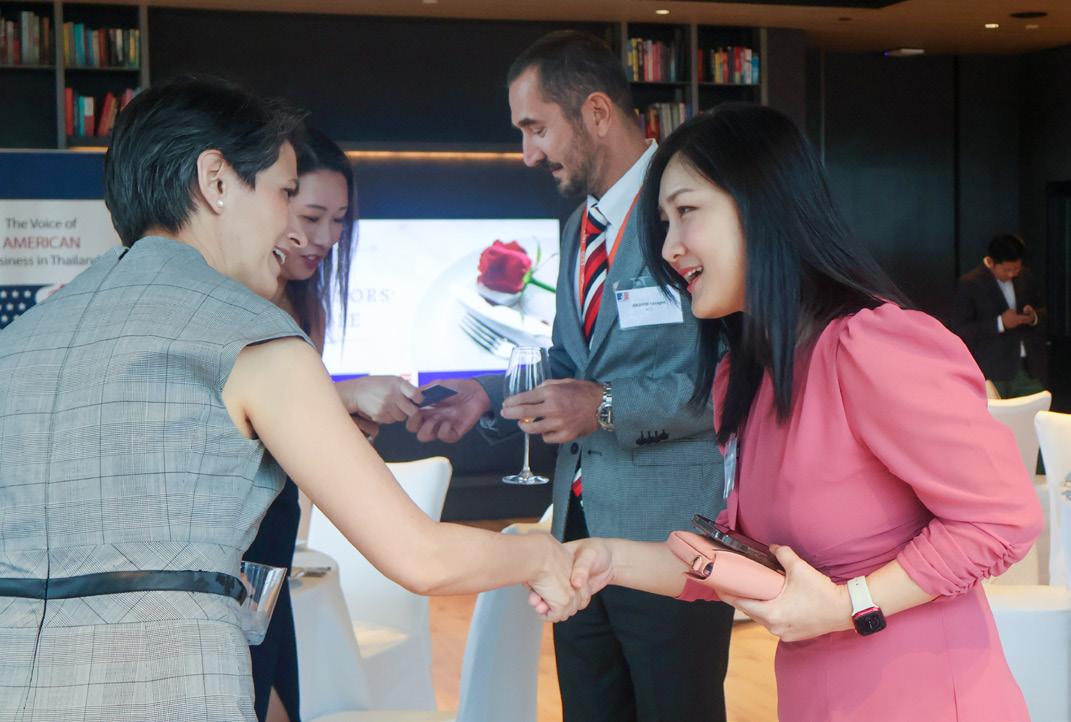
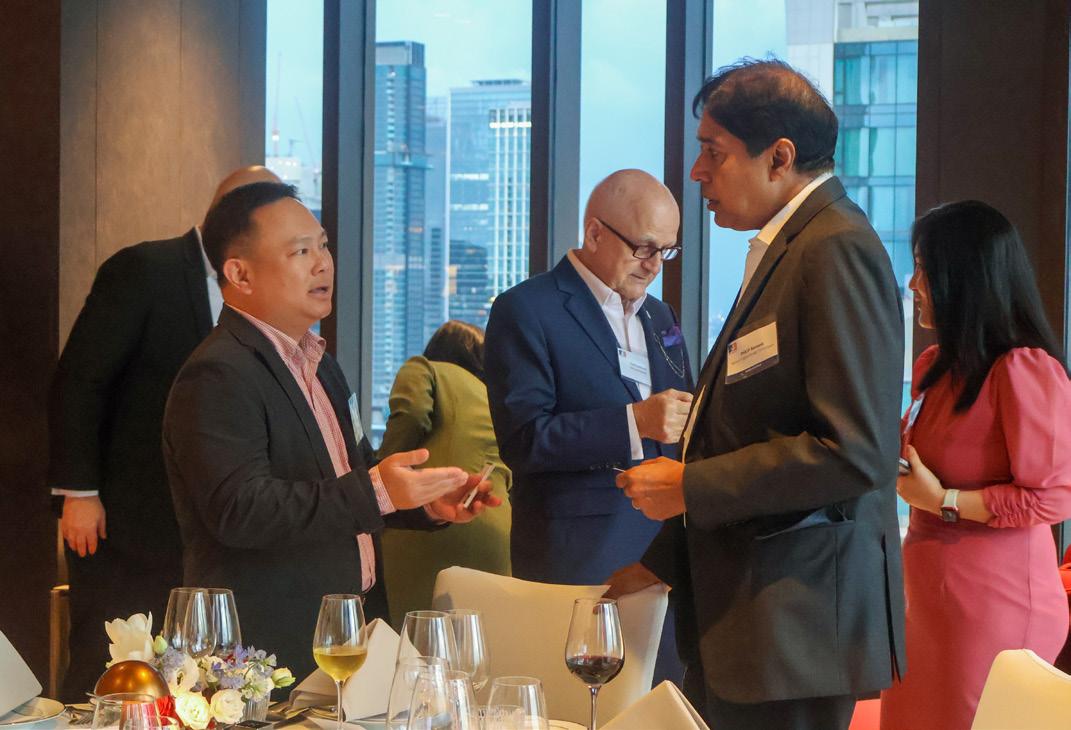
Y8 got 2.5X more sa optimising for purch


Speakers: Sriphicha Chaisirivichien of Indorama Ventures; Panomporn Yapakai of Kenan Institute Asia; and Jacob Holder of The Mobius Agency
Organized by: Corporate Impact Council
Event Highlights:
The AMCHAM Corporate Impact Council hosted the second Connecting for Corporate Impact Forum in 2025. The event began with an information session, where the co-chairs shared the award theme, categories, submission process, and judging criteria. Following the presentation, attendees were encouraged to connect with like-minded professionals and seek potential partners for their projects/ programs. We also welcomed representatives from the Bangkok Metropolitan Administration (BMA).
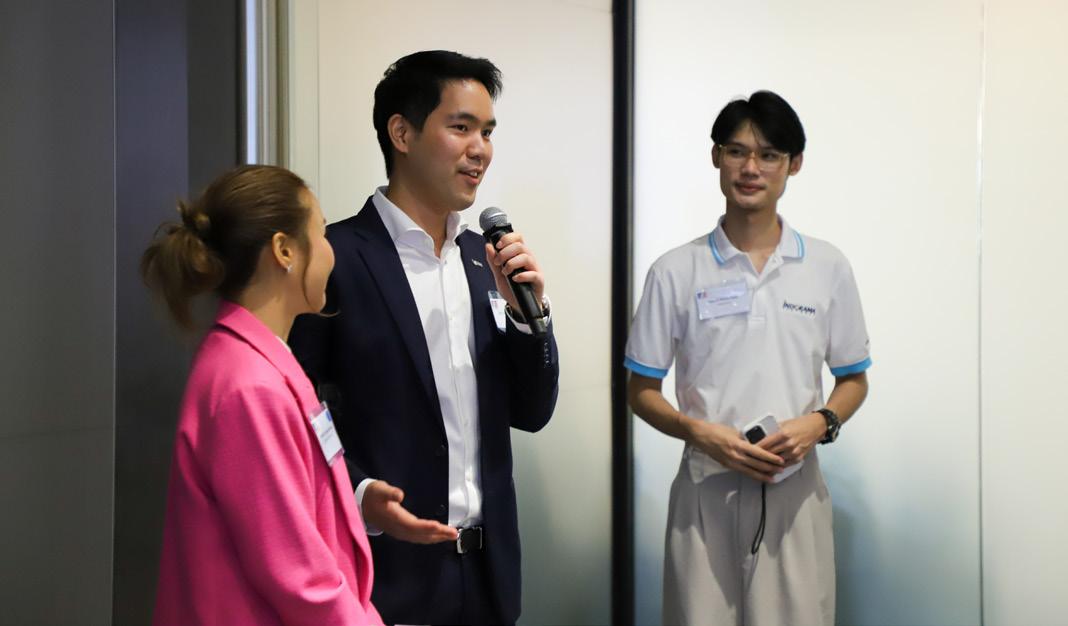
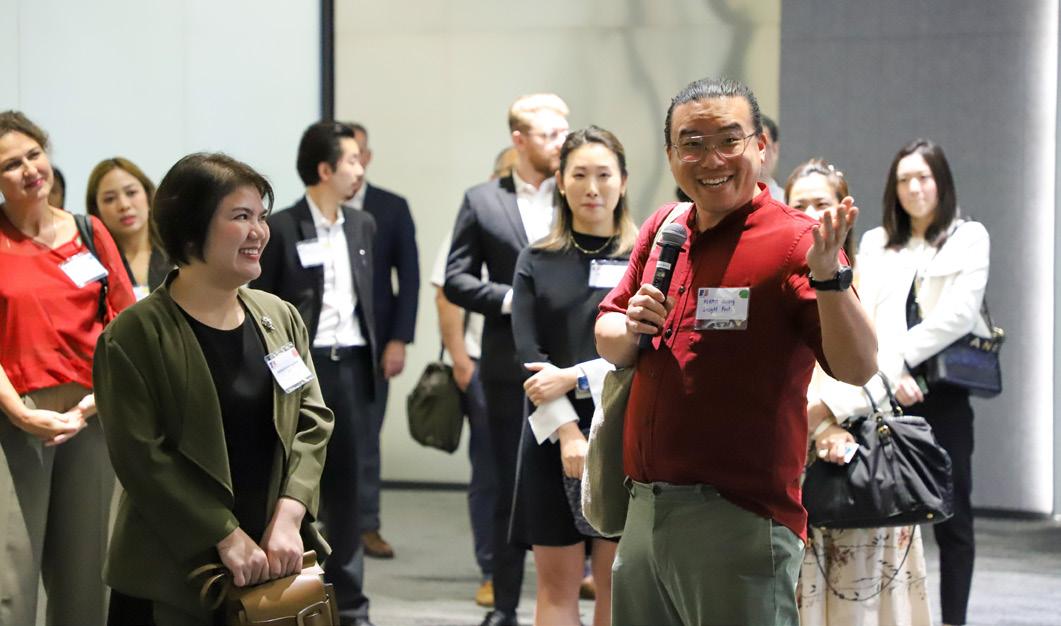

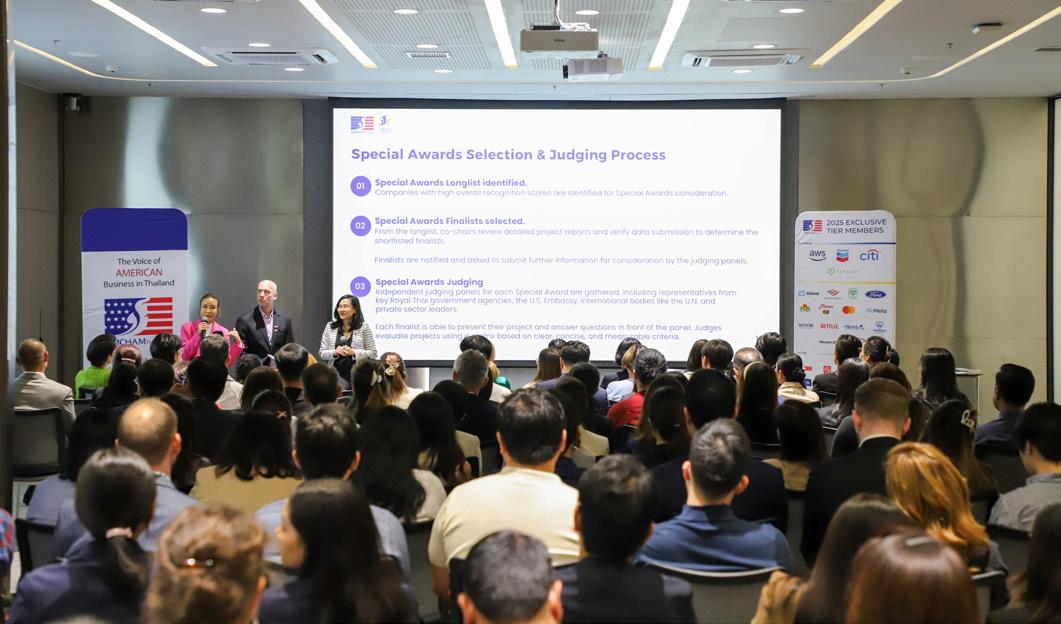
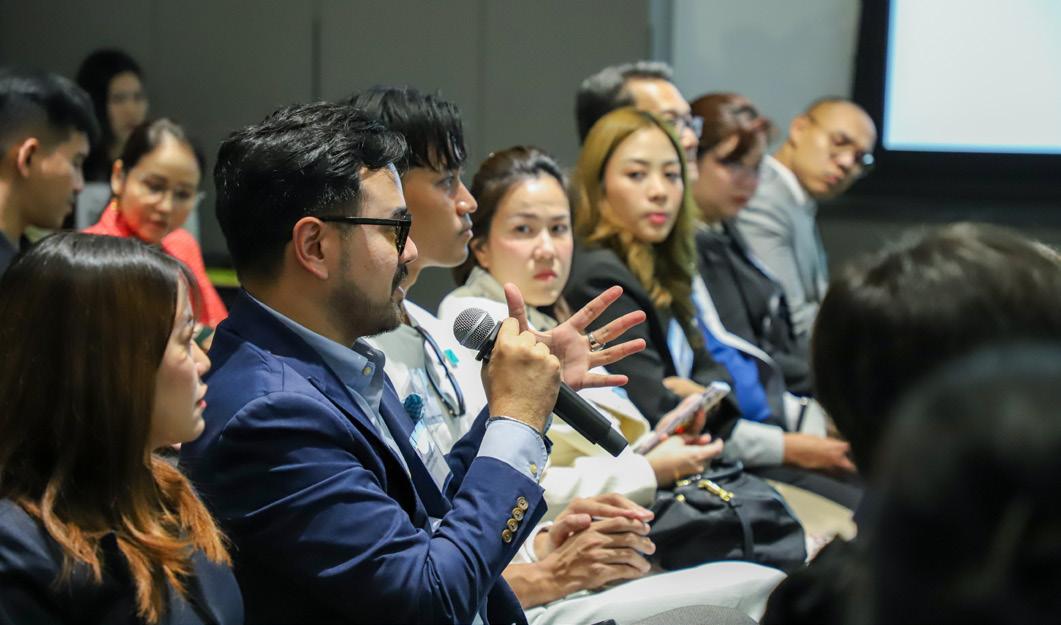
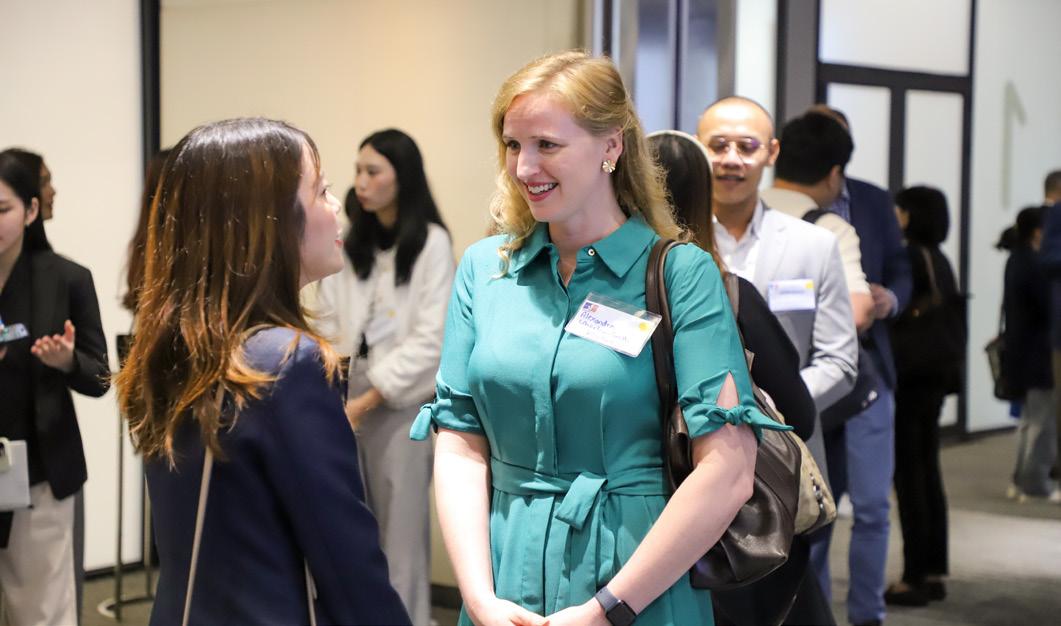
Environmental, Social, and Governance (ESG)
Financial Mechanism to Promote Sustainable Business Practices –Jun 26
Speaker: Rachanee Chanawatr of International Finance Corporation (IFC)
Organized by: Environmental, Social, and Governance (ESG)
Event Highlights:
The ESG Council meeting featured a presentation on the Financial Mechanism to Promote Sustainable Business Practices. The presentation covered IFC’s mechanism for business sustainability, including technical assistance, blended finance, performance-based incentives, and green bonds/loans. Rachanee also discussed available IFC-developed tools such as the Edge application.
The Council also shared updates on the Draft Climate Change and Sustainable Packaging Management Acts before the meeting concluded.
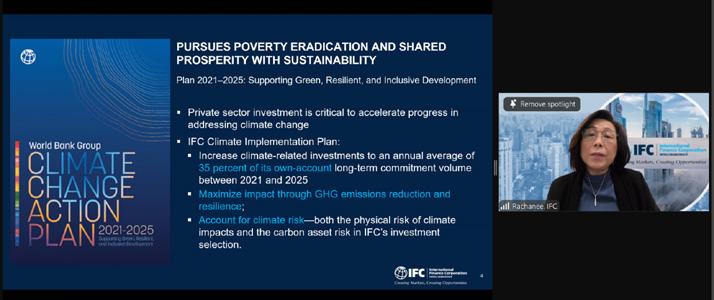

Speakers: Suchada Chiamkitrung of Microsoft; Federico Brandi of Roojai; and Aubin Samacoits of Sertis
Moderator: Bing Moraras of Microsoft
Organized by: Young Professionals Committee
Event Highlights:
AMCHAM members enjoyed an exclusive visit to Microsoft Thailand at One Bangkok. The program began with a guided site tour and a showcase of Microsoft’s AI innovations, including Microsoft Copilot. The visit featured an engaging panel discussion with expert speakers from leading AI companies, offering forward-looking insights on AI, evolving skill sets, and leadership. The session concluded with a dynamic question-and-answer exchange.
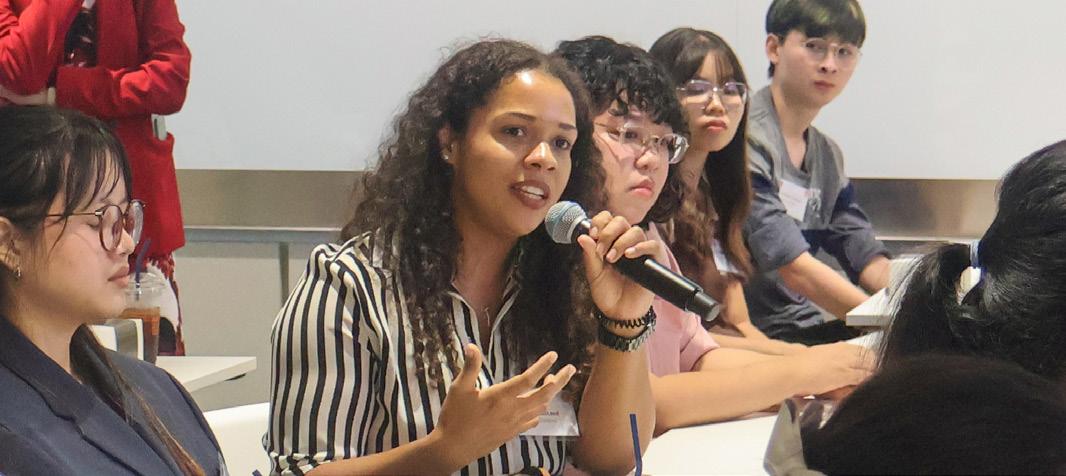

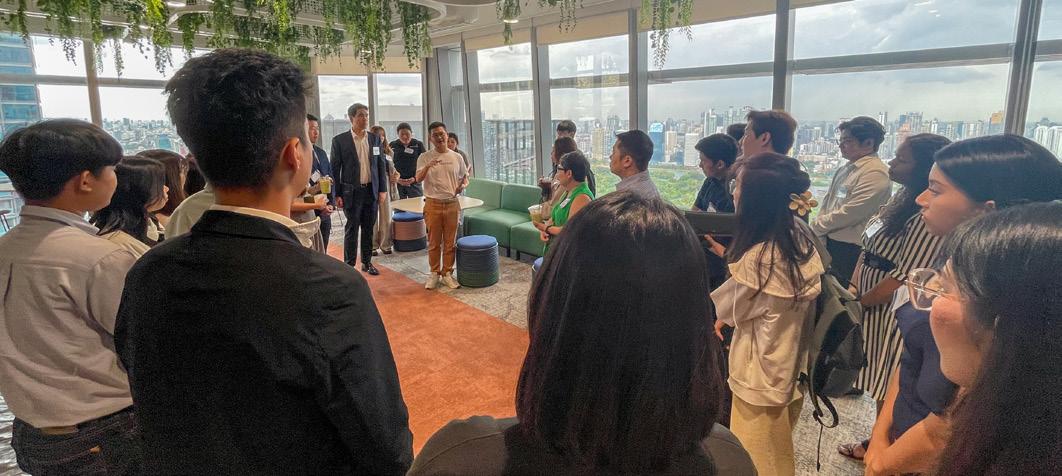
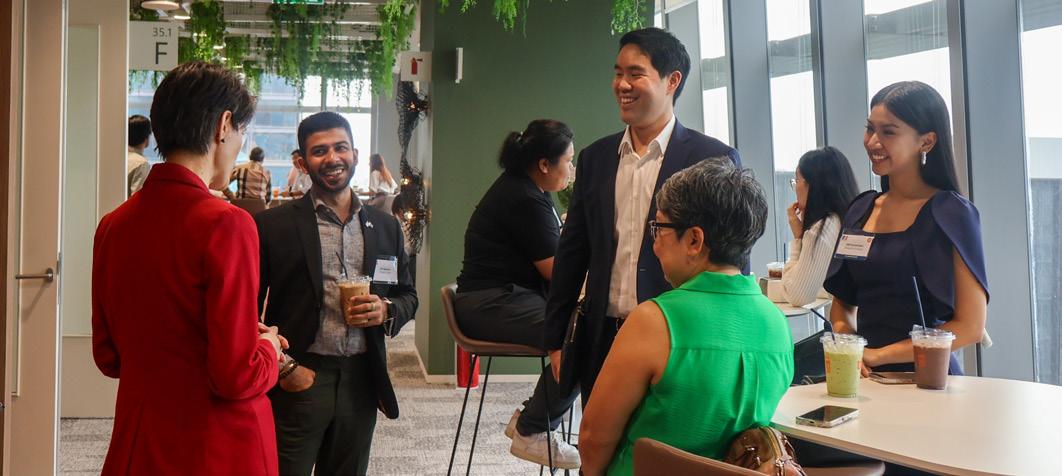

Speaker: Jessada Thongpak, Associate Director for ASEAN Light Vehicle Production Forecast of S&P Global Mobility
Organized by: Auto Council
Event Highlights:
AMCHAM Auto Council hosted a presentation on the latest trends and developments in the Thai & ASEAN automotive industry. The event featured discussions on ASEAN’s economic outlook among U.S. tariff impacts, light vehicle production forecasts, market challenges, and the evolving competitive landscape between established and emerging automakers.

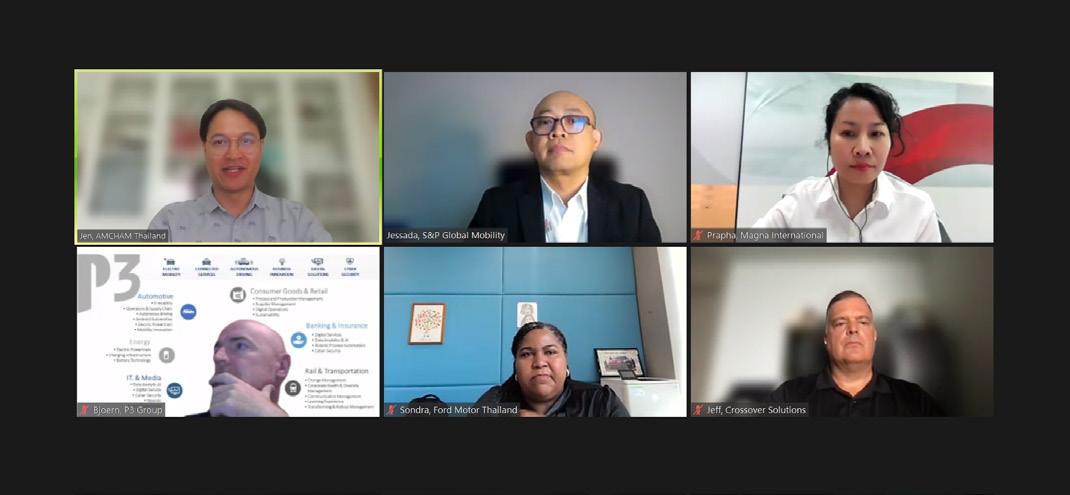
Speakers: ATF Scholars and Alumni Maturada Charoensuk, Mongkolchai Nakchoom, Tittaya Apichai, Pornsinee Norkhamla, Nichapat Musigapan, Keetakan Chalermchai, Aungsumanee Rattanasingha, Damisa Sukjamras, Papatson Maboot, and Wutthichai Phomasorn
Organized by: Community Projects Council
Event Highlights:
The ATF, in collaboration with Naresuan University, hosted a virtual information session to provide in-depth guidance on the application process and eligibility requirements. The event featured current ATF scholars and alumni, who shared their personal stories and experiences. They offered attendees a firsthand look at the meaningful impact of the Foundation’s support.

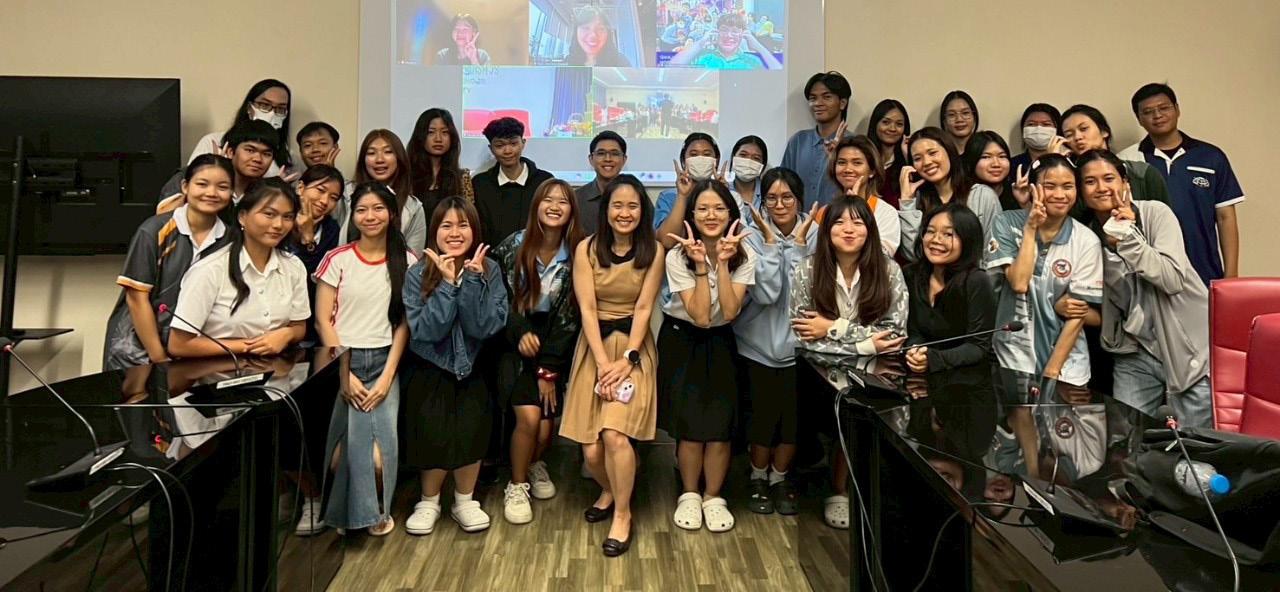
Event Highlights:
AMCHAM new members gathered for coffee and great conversations on a Tuesday morning. The AMCHAM Board of Governors, Council Leaders, and Committee Chairs also joined to greet and introduce them to the welcoming AMCHAM Community.

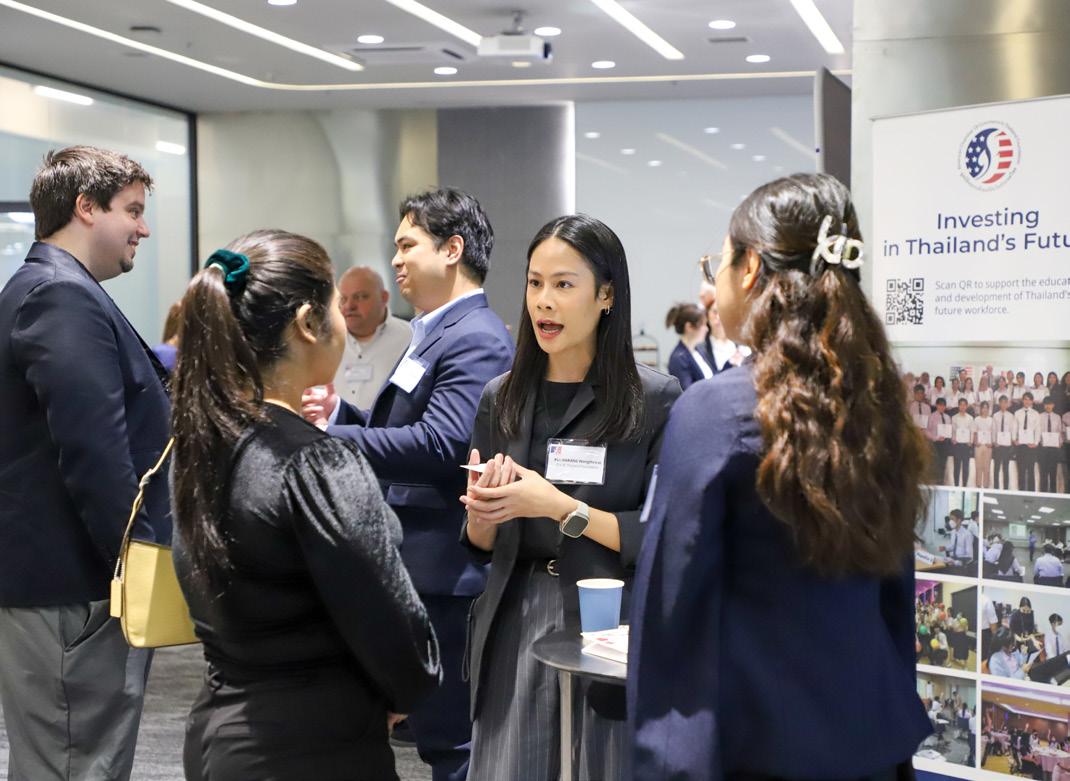
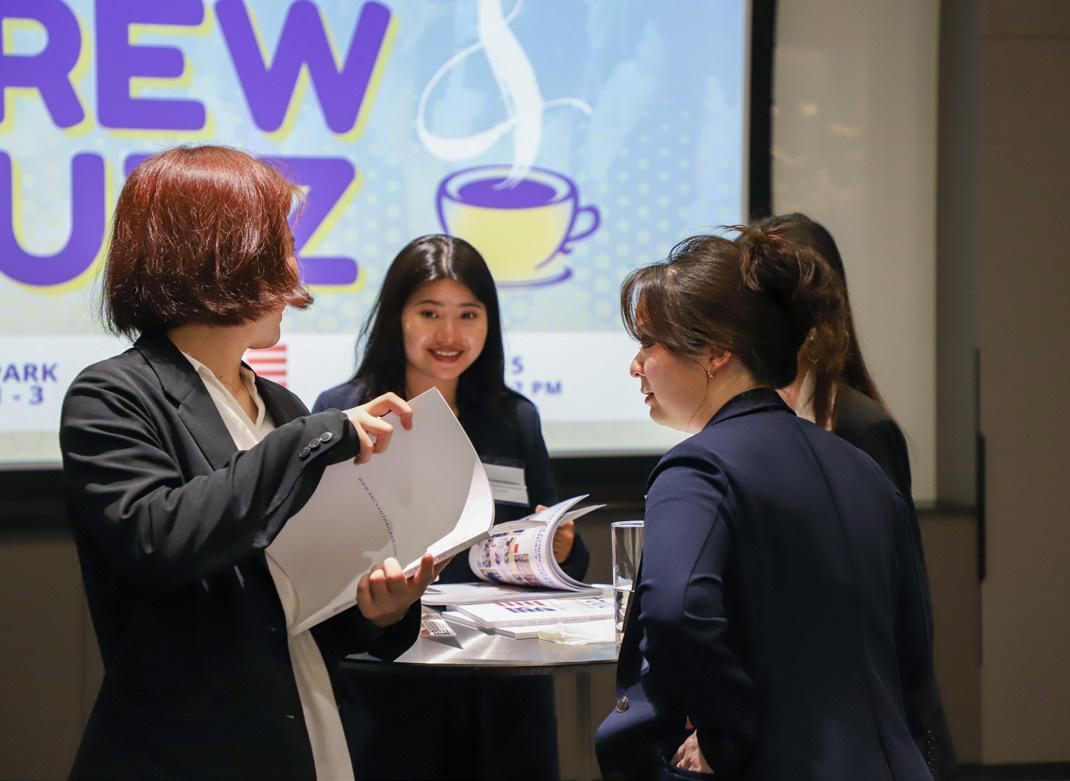
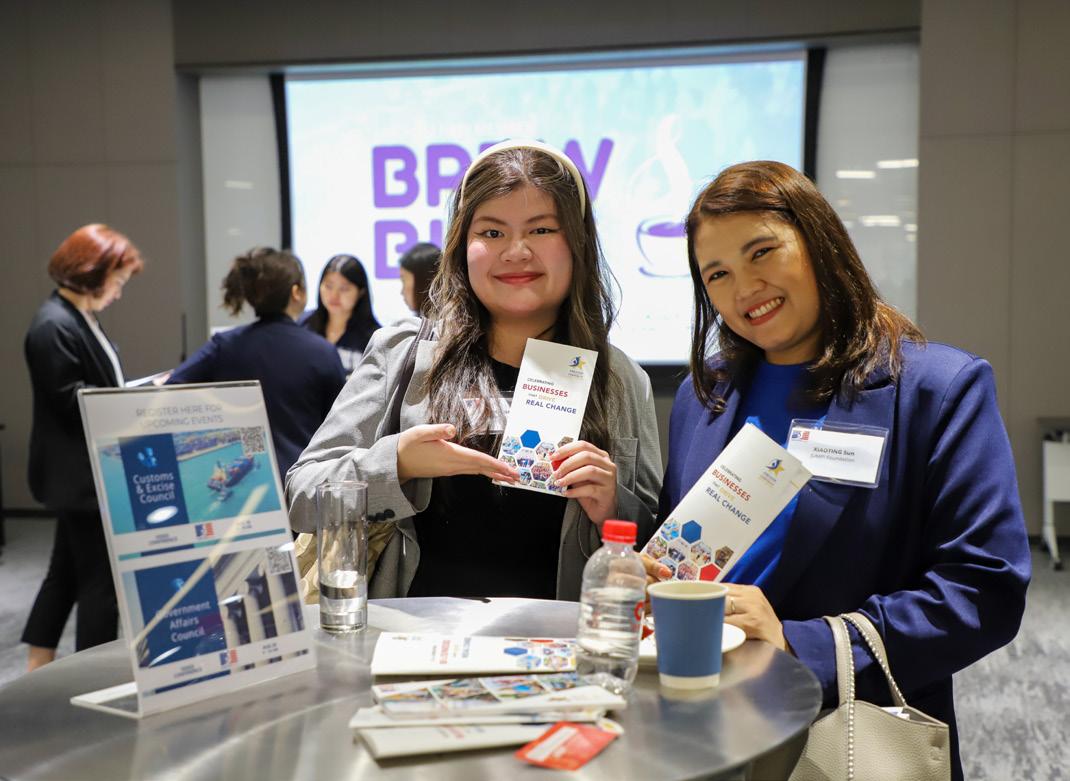
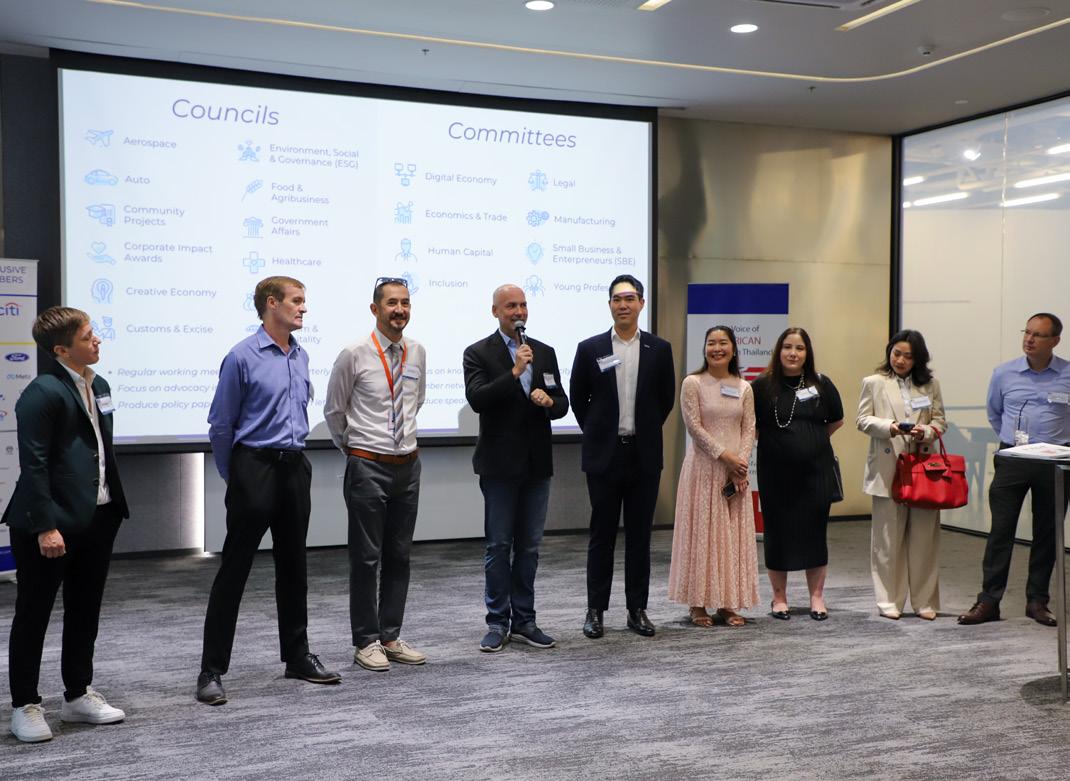
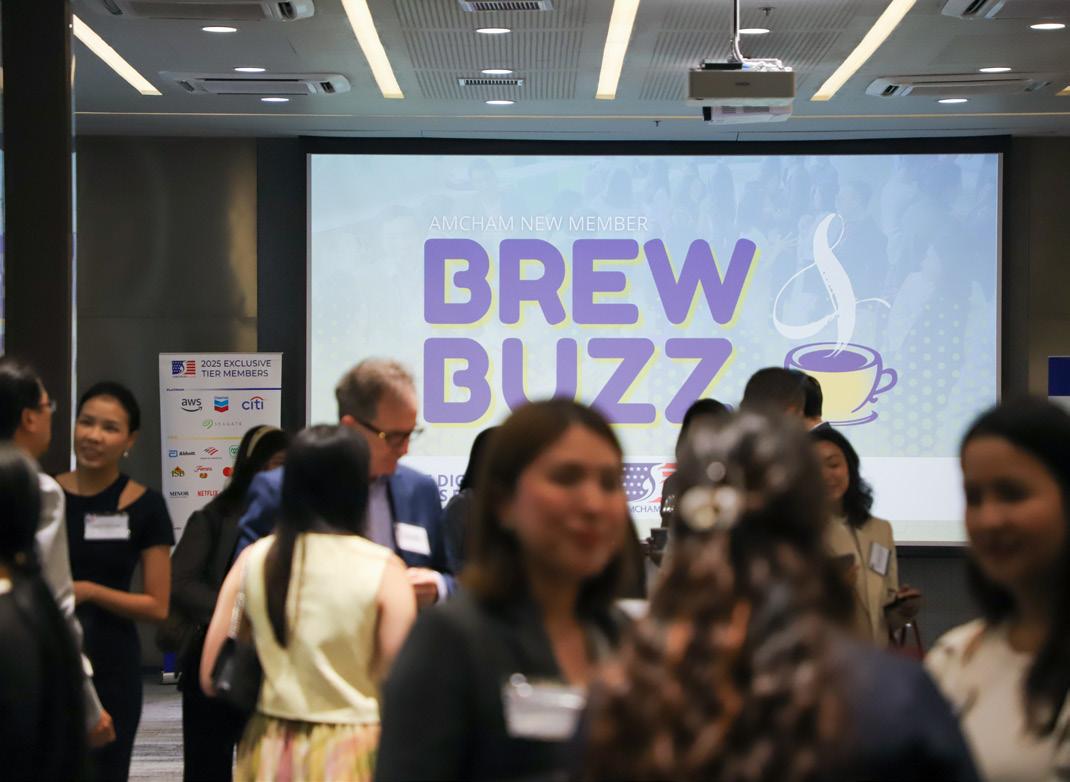
Organized by: Manufacturing Committee
Event Highlights:
AMCHAM Manufacturing Committee hosted an amazing factory tour to Hitachi Energy (Thailand) Limited. Members were introduced to the company’s vision on energy sector, followed by a factory tour highlighting the global standard practices for safety and quality across all three factories, while also showcasing cutting-edge green energy solutions, power quality, including microgrids and sustainable transformers.
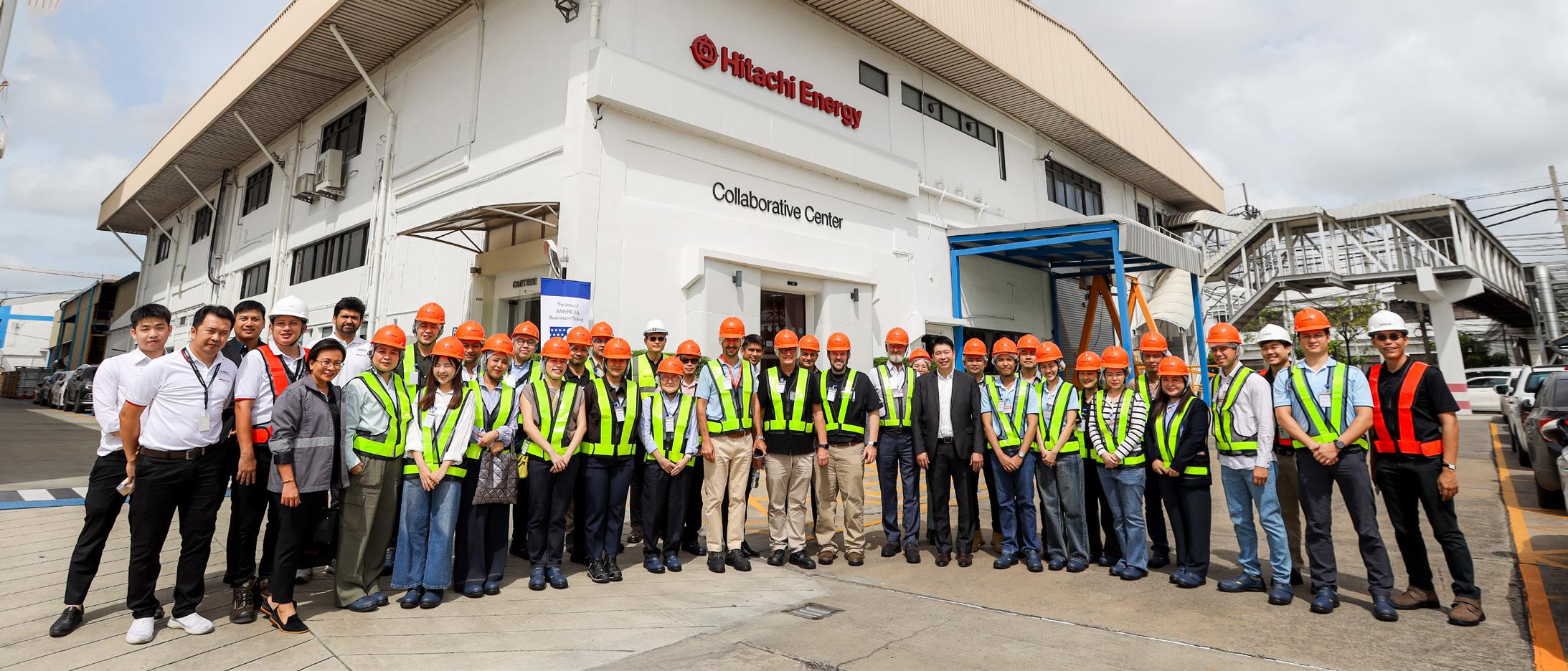

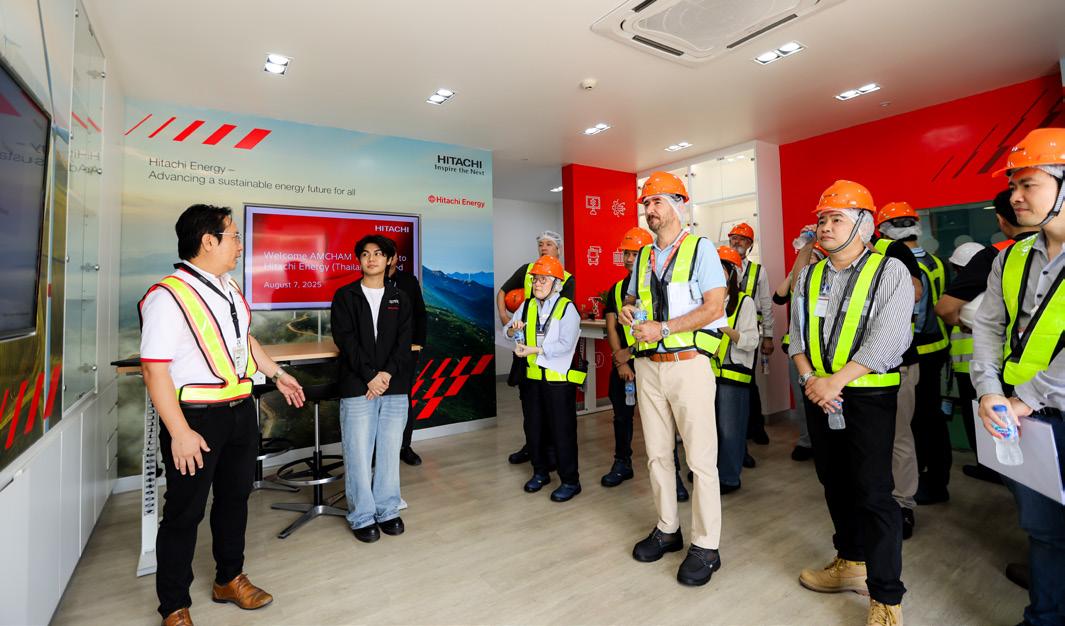
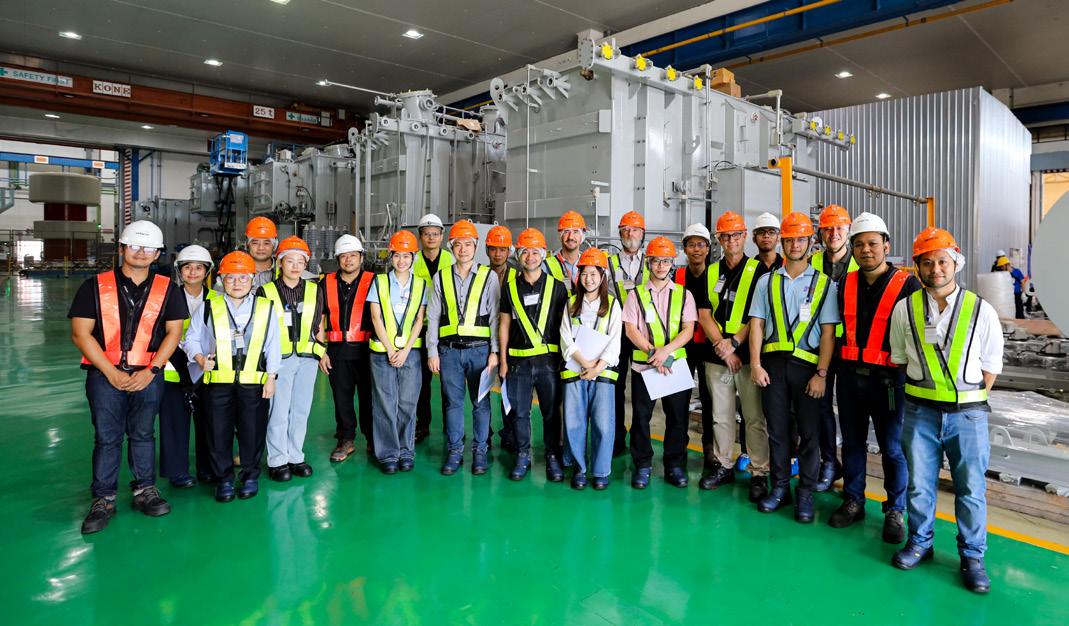
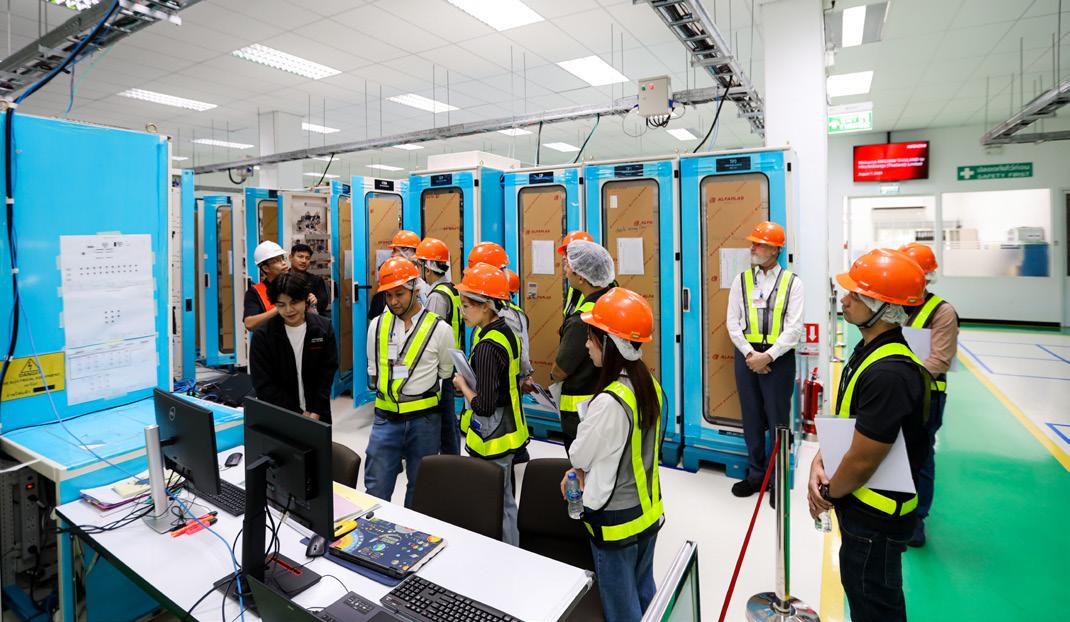
Organized by: Manufacturing Committee
Event Highlights:
AMCHAM members enjoyed a site visit to Seagate Technology. The program began with a presentation on the company’s operations, innovations in data storage, and sustainability efforts. Members then toured the facility to observe the manufacturing process of hard disk drive components, featuring precision engineering and quality control systems. The tour also provided insights into Seagate's modern facilities and environmentally conscious approach to manufacturing.


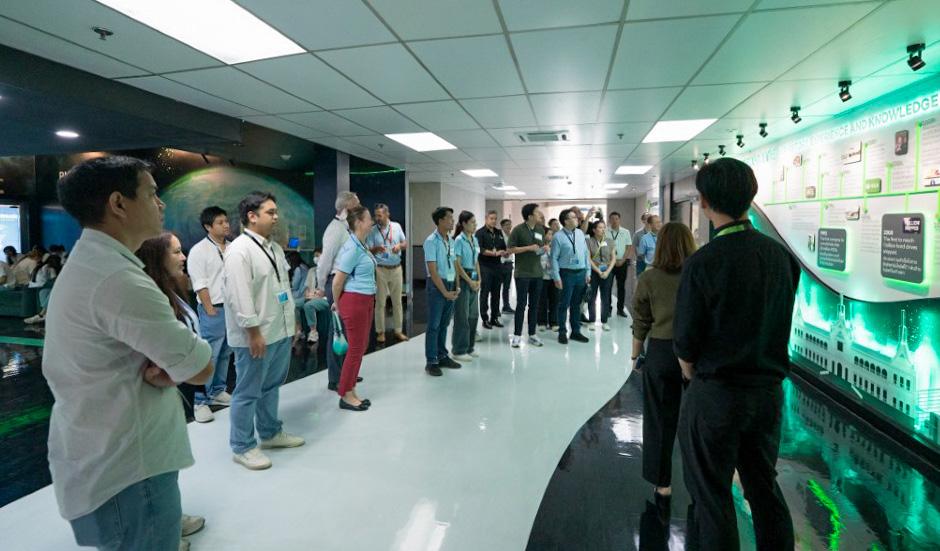
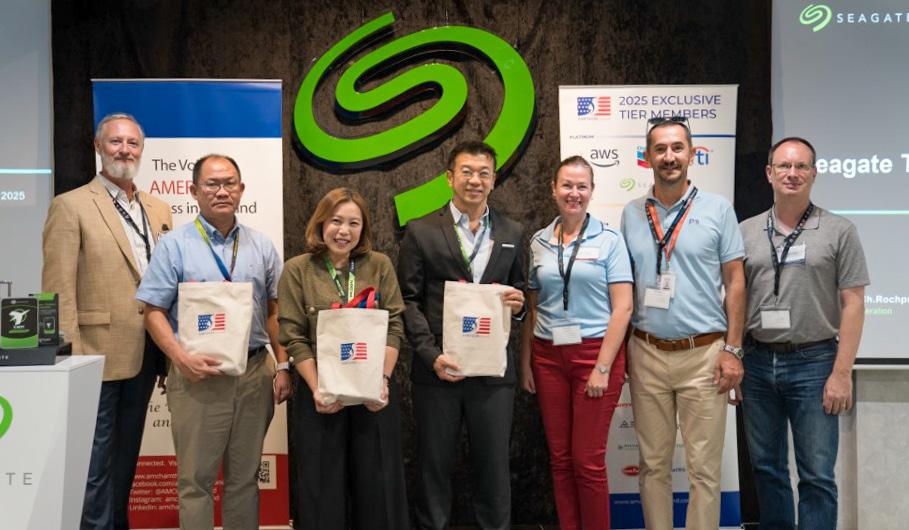
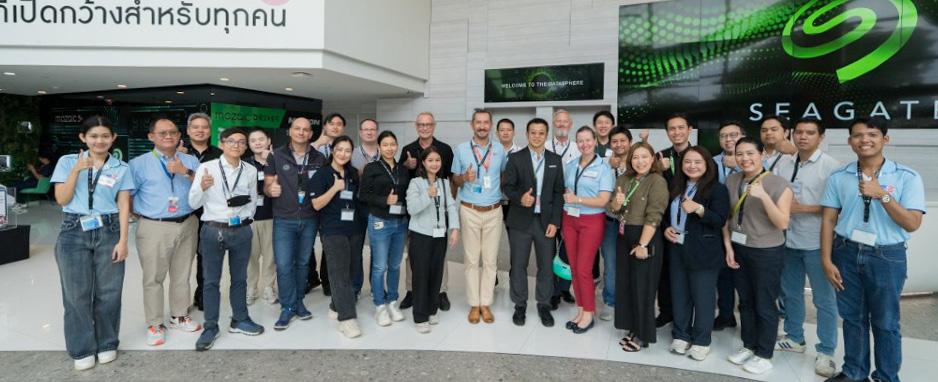
Works with Windows® and Mac®, plus Android™, iPhone® and gaming consoles.
3m drop resistance, P54 dust and rain resistant
Fast transfer speed up to 1,000MB/s
Thumb-sized drive
Direct USB-C connectivity



By Amazon Web Services (AWS)

Amazon Web Services (AWS)’s Skills to Jobs Tech Alliance Program in Thailand is aimed to develop emerging technology and cloud talent in support of Thailand’s digital transformation goals. AWS has trained more than 50,000 individuals in Thailand with cloud skills since 2017.
The Future of Jobs report, produced by World Economic Forum in 2025, identifies skill gaps in the labor market as the primary barrier to business transformation, cited by 63% of surveyed employers. In response, AWS is working closely with government agencies and associations, including the Ministry of Higher Education, Science, Research and Innovation (MHESI), the Office of National Higher Education Science Research and Innovation Policy Council (NXPO), Department of Skill Development (DSD) and Cyber Innovation Promotion Association of Technology (CIPAT). The Tech Alliance Thailand aims to modernize technology education and connect learners to indemand tech jobs across Thailand.
AWS collaborates with government agencies, educational institutions, and employers to build a comprehensive skills-to-jobs ecosystem. Through the Tech Alliance program, AWS supports Thai educational institutions in modernizing their curricula utilizing industry-validated skill maps for areas such as software engineering, data analytics, and artificial intelligence, helping prepare students for in-demand tech careers.
AWS will work with MHESI by providing industry-validated skills insights to support their nationwide initiative of developing comprehensive skills pathways. This approach will enable Thai educational institutions to align their curricula with evolving industry demands, ensuring programs remain relevant in the fastchanging technology sector. These efforts will be enhanced through a partnership with Pearson, who will contribute global expertise in education content, assessments, qualifications and enterprise learning to Tech Alliance institutions in the region.
The collaboration between MHESI and AWS Tech Alliance marks an important milestone for the nation’s education system. AWS’s skills maps will complement Thailand’s existing national frameworks, providing a comprehensive view of the digital competencies in demand by industry for the higher education institutions. This partnership focuses on creating meaningful connections between students and employers through handson learning experiences, enhancing graduate employability and strengthening Thailand’s position as a hub for digital talent.
Leading educational institutions, including AI Engineering Institute, Bangkok University, Chulalongkorn University, CMKL University,
Khon Kaen University, King Mongkut’s Institute of Technology Ladkrabang (KMITL), King Mongkut’s University of Technology Thonburi (KMUTT), Mahidol University, National Institute of Development Administration (NIDA) Business School, Rangsit University and Thammasat University, will work with AWS to integrate industry-aligned cloud computing curriculum and provide students with hands-on technical training.
The Tech Alliance will also bring together major Thai enterprises committed to developing local tech talent, including Ascend Money, AXONS, BBTV New Media Co., Ltd, Bitkub, eCloudValley, Gosoft Thailand Co.Ltd, LINE MAN Wongnai, NTT DATA Thailand, PTT GC, SiS Distribution (Thailand) Public Company Limited, and Wisesight. These employers will provide insights into the skills maps and hiring needs, and will engage students directly through a series of applied learning activities:
• Tech Talks: Industry expert-led sessions focused on cloud technology, industry trends, and professional skills. Tech talks allow employers to showcase their brand, job opportunities, and technical knowledge.
• Job Preparation Events: Employers engage with entry-level tech talent through work immersion, mentoring, technical hiring feedback, and job fairs, helping develop their professional and technical skills.
• Technical Skilling Events: Employers assess candidates’ skills through hands-on workshops, hackathons, and cloud skills competitions.
Students participating in Tech Alliance initiatives will have the opportunity to engage in applied learning activities based on industry use cases, develop in-demand technical skills, and connect directly with potential employers.
This initiative comes as AWS continues to invest in Thailand’s digital future. Through the newly launched AWS Asia Pacific (Thailand) Region, AWS is investing more than 5 billion U.S. dollars and this investment is projected to contribute over 10 billion U.S. dollars to Thailand’s GDP and support
over 11,000 full-time equivalent jobs annually through the local businesses supported by the AWS Asia Pacific (Thailand) Region.
The launch of AWS Tech Alliance Thailand demonstrates AWS’s long-term commitment to developing cloud skills and creating opportunities for Thai citizens. By bringing together government, academia, and industry, AWS aims to build a sustainable pipeline of tech talent to support Thailand’s growing digital economy.
AWS Education Programs, including AWS Academy, AWS Educate and AWS re/Start, and AWS Skill Builder, are active in Thailand, with learners participating in training aligned with AWS certifications.
• AWS Academy offers turnkey cloud computing programs to higher education institutions. The goal is to prepare students for industry recognized AWS certifications and for highdemand jobs. This program helps educators stay at the forefront of AWS cloud innovation, enabling students to develop the skills needed for one of the fastest-growing industries.
• AWS Educate offers hundreds of hours of training for cloud novices at their own pace. Learners can explore job opportunities on the AWS Educate Job Board site and get digital badges. Signing up requires only an email address.
• AWS re/Start is a full-time skills development and training program that prepares individuals for entry-level careers in cloud computing. This 12-week program covers fundamental AWS Cloud skills, practical IT skills, and professional development, including resume writing and interview preparation. Graduates can connect to potential employers through AWS’s network of employers and are prepared to take the AWS Certified Cloud Practitioner exam.
• AWS Skill Builder is an online learning center offering more than 600 no-cost courses. It covers both role-based training and domainspecific learning plans. The training plans allow learners to master professions such as cloud operator, developer, and solutions architect.
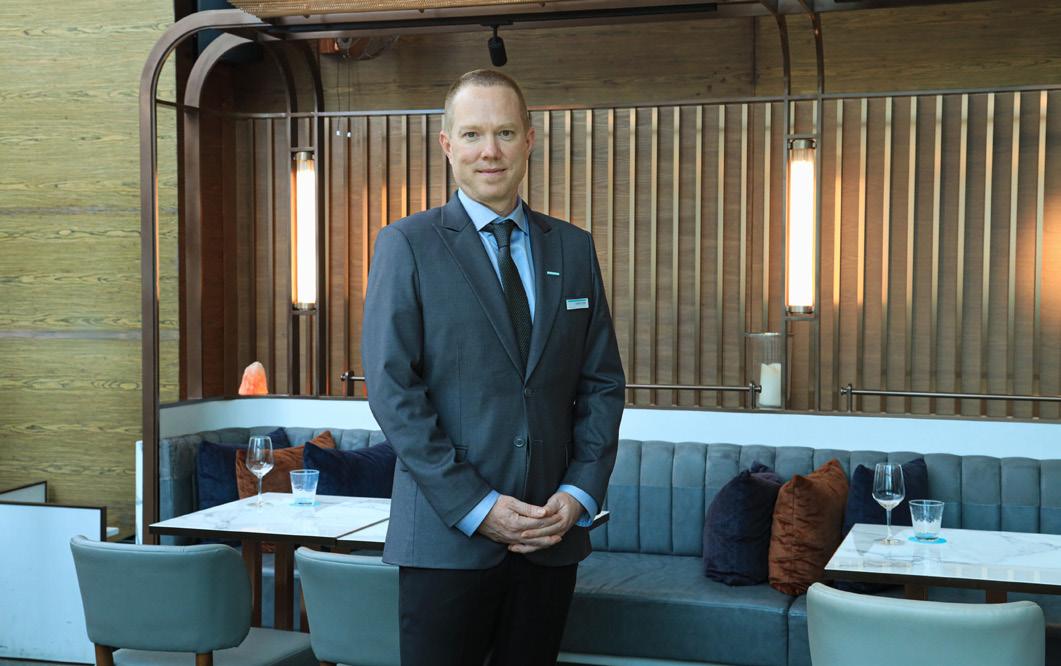
Le Méridien Bangkok announced the appointment of Christian Hinckley as its new Chef & Beverage Director. With over two decades of experience
in some of the world’s most prestigious luxury hotels and resorts, Christian brings a wealth of expertise and a passion for crafting meaningful guest experiences.
A native of the United States, Christian brings an international perspective and deep cultural sensitivity, drawn from a distinguished career that includes leadership positions at Aman Resorts, Park Hyatt, Capella, and most recently, Centara Reserve Samui. In his new role, Christian will oversee the hotel’s entire Food & Beverage division, leading both culinary and service teams to deliver inspired dining experiences aligned with the brand’s creative spirit.
Copeland, a designer and manufacturer of highefficiency air conditioning and refrigeration compressors, recently announced a partnership with BIG, a climate tech company, to introduce low-carbon argon into its manufacturing process. This marks the first time in Thailand that lowcarbon industrial gas is used in compressor production, reinforcing Copeland’s commitment to sustainable innovation.
The low-carbon argon, supplied by BIG and certified by the Thailand Greenhouse Gas Management Organization (TGO), can reduce carbon dioxide emissions by over 50% compared to conventional argon. Its use significantly cuts Scope 3 emissionsindirect emissions from the supply chain. The partnership supports Thailand’s broader goal of achieving carbon neutrality, while aligning
Copeland’s operations with global sustainability trends and increasing competitiveness in markets where environmental performance and carbon tax measures are gaining importance. In addition to reducing emissions, the initiative enhances product quality and energy efficiency in line with international standards.
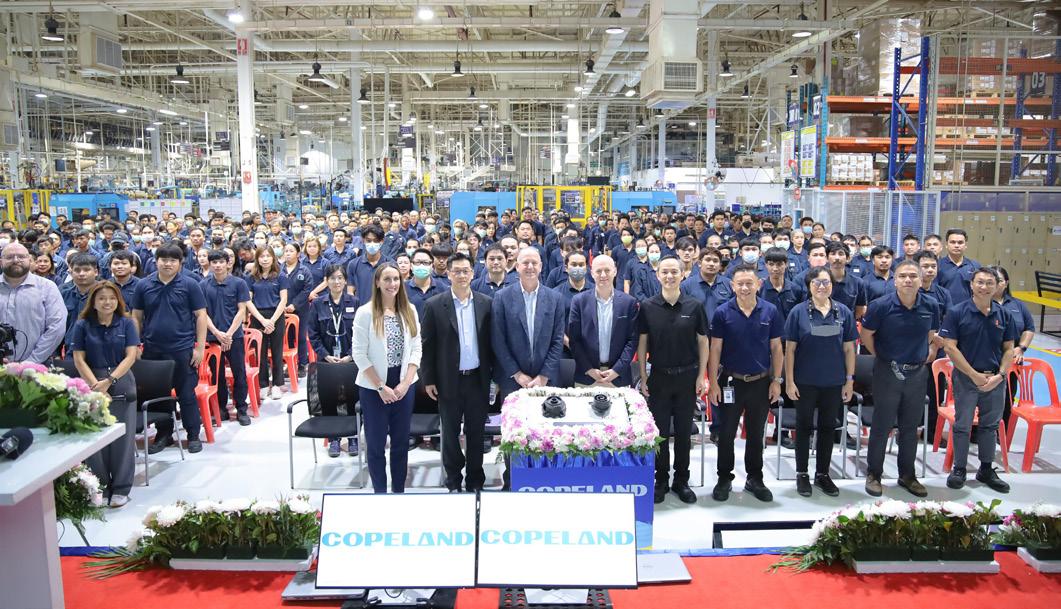
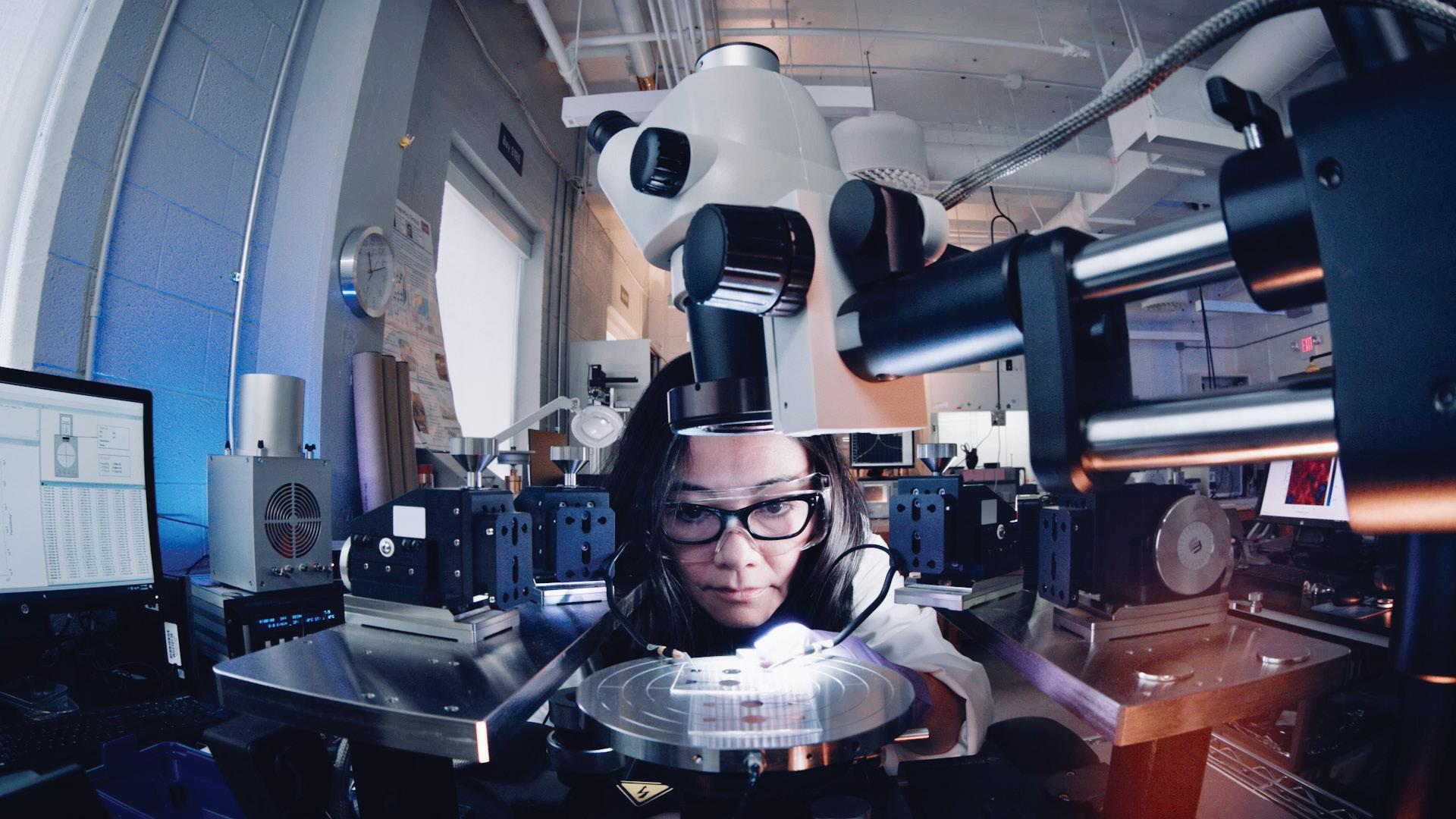
Every day, 3M employees are advancing the future of automotive technologies, consumer electronics, personal safety, consumer goods, climate innovation, and more. By making indispensable solutions that empower modern life and advance human progress, 3M innovates and delivers solutions for global challenges.
Learn more at 3M.co.th.
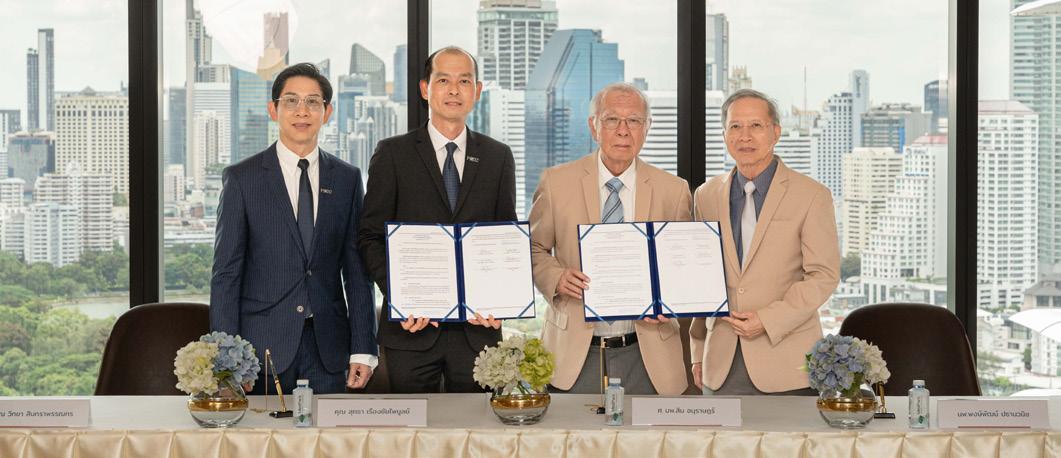
Medpark Hospital is reinforcing its vision of proactive healthcare by collaborating with Magnolia Quality Development Corporation Limited (MQDC) to provide comprehensive health benefits to residents across all MQDC projects and improve the quality of life by integrating living with access to advanced medical services.
The signing ceremony was held recently under the project name “Promoting Healthcare for
Residents in MQDC Projects”. The project aims to integrate premium healthcare services into residents’ lifestyles under the concept of “Good Health Begins at Home”. This partnership reflects the shared commitment of both organizations to deliver quality healthcare services and care for residents within all aspects of their lives.


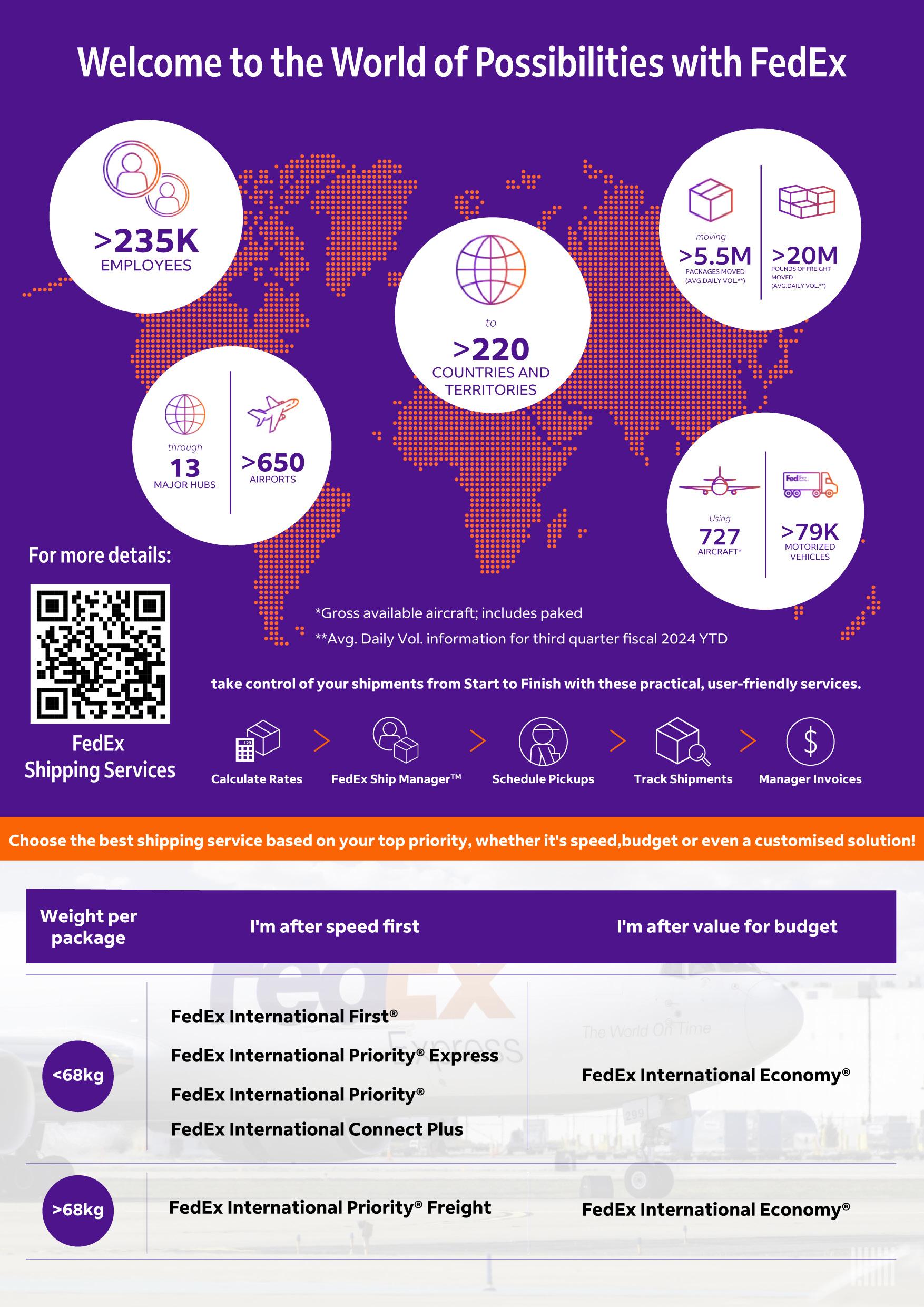

Boeing International Corporation Thailand represents Boeing’s regional presence, supporting Thailand’s aviation, defense, and security sectors with advanced technologies and partnerships. They supply aircraft like the 737, 777, and 787 Dreamliner to Thai carriers, while also providing maintenance and operational support. Boeing invests in workforce development, STEM education, and community programs to foster innovation and strengthen local communities.

CloudHQ is a global leader in designing, building, and operating mission-critical data centers. Founded in 2016, they serve the world’s top tech companies with over 30 million sq. ft. of space and 3,700 MW of capacity. Expanding in APAC, their new 108 MW campus near Bangkok will offer secure, high-performance, carrier-neutral infrastructure to support Southeast Asia’s digital growth.

D-PREP International School is an innovative American-curriculum school in Bangna district for students aged 2 to 18, from Nursery to Grade 12. Guided by their core values -Dream, Discover, Deliver - they encourage students to dream big, explore their interests, and take meaningful action in their communities and the world.
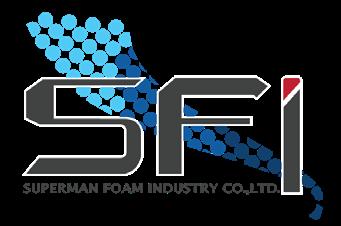
Founded in 2004, Superman Foam Industry (SFI) is a Thai SME specializing in high-precision packaging and custom processing. Operating a 9,340m2 facility in Samut Prakan, SFI serves industries like automotive, electronics, and food with EPE, EVA foam, trays, and more. Certified to ISO and IATF standards, they focus on innovation, quality, and eco-friendly packaging solutions tailored to client needs.

A subsidiary of UOB, UOB Asset Management is a leading asset manager headquartered in Singapore with a strong presence across Asia. They offer mutual funds, pension funds, and tailored portfolio solutions. In Thailand, it provides diversified, ESG-focused investment strategies to help clients achieve long-term financial goals through trusted and sustainable approaches.

Established in 2017, Vortex Aviation provides defense equipment and support services for military and security forces in Thailand and beyond. They offer cost-effective, high-quality, and timely solutions tailored to clients’ needs. With a focus on innovation and customer satisfaction, they deliver reliable, customized support in a rapidly evolving global defense landscape.
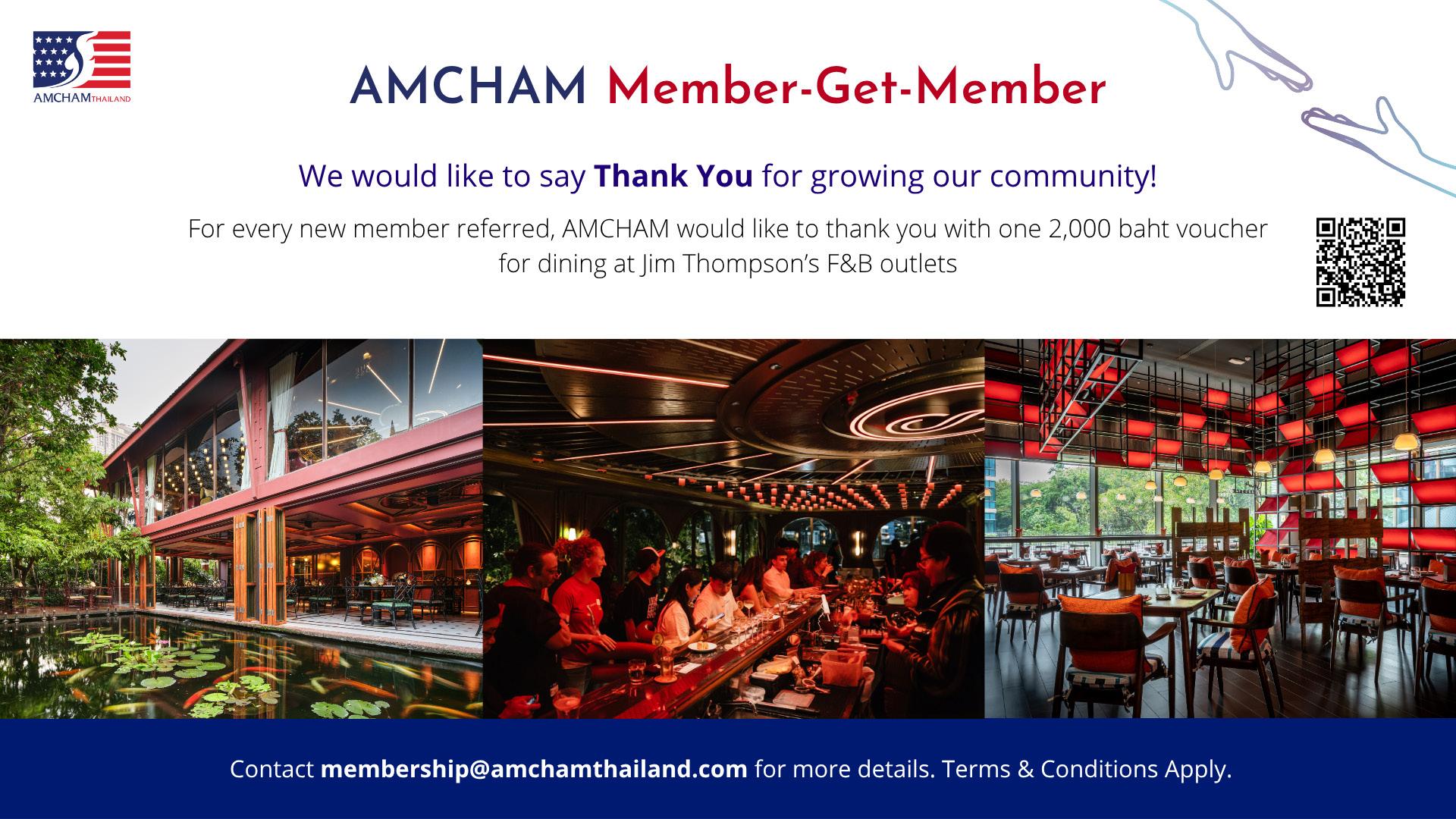
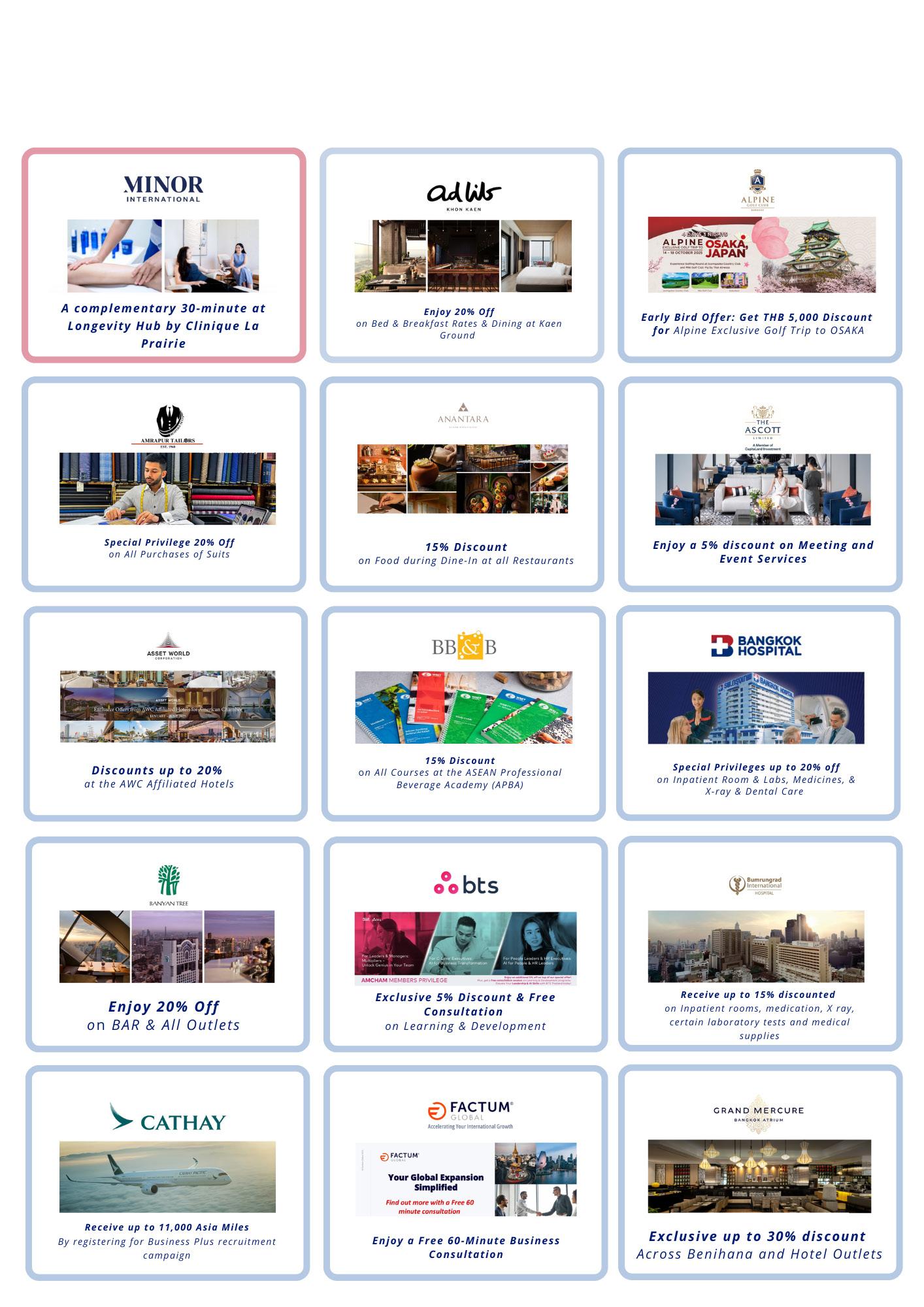
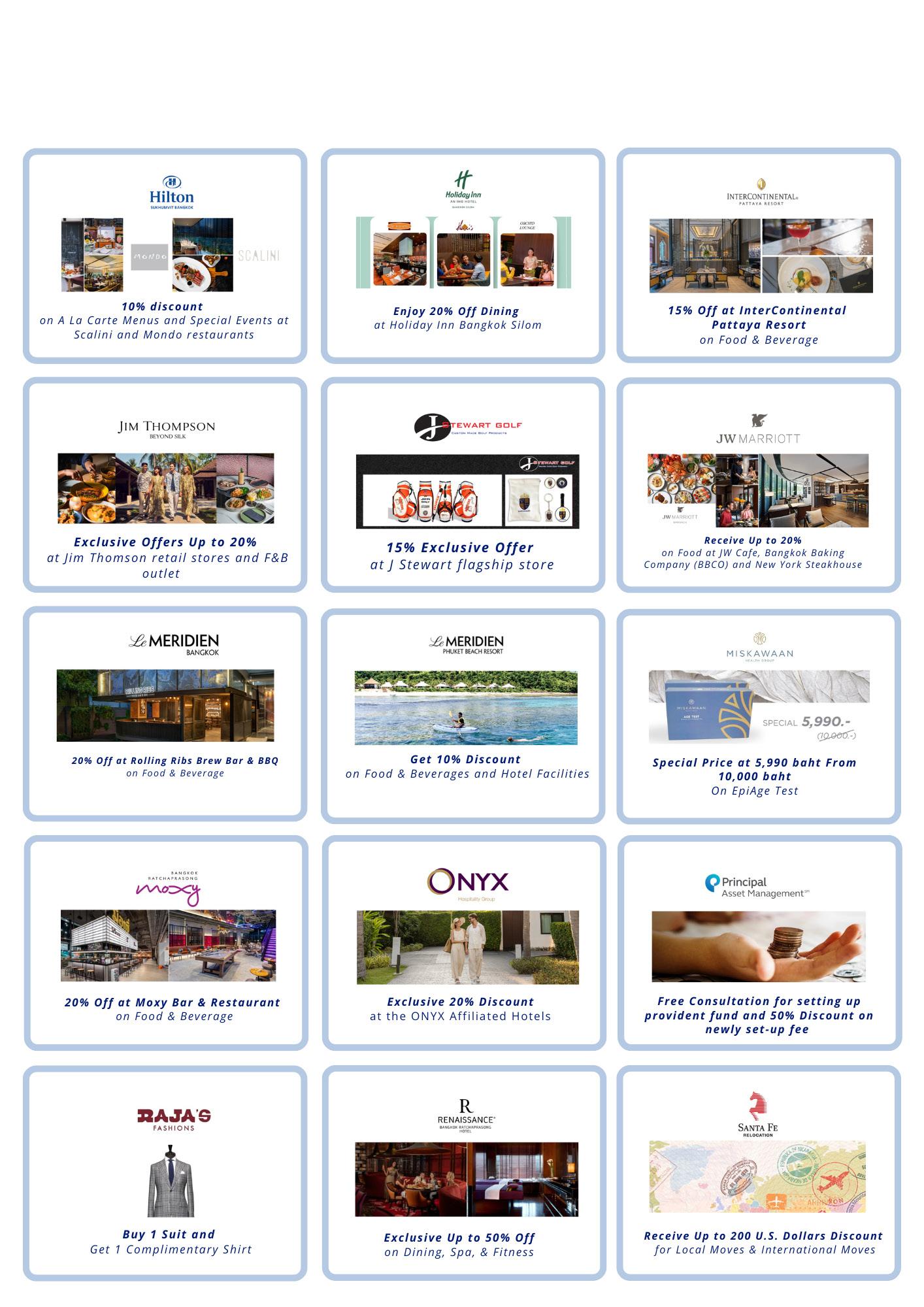
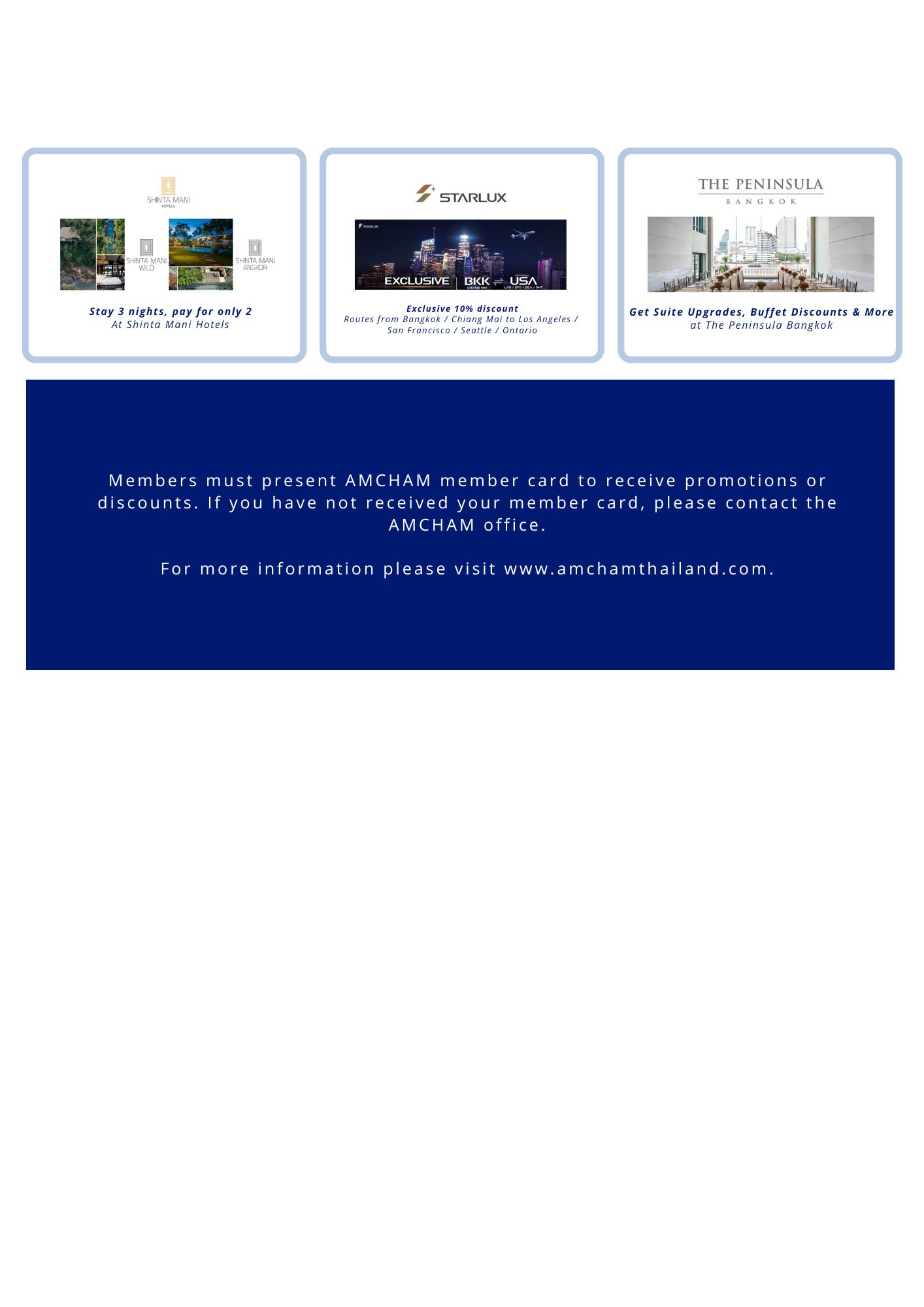














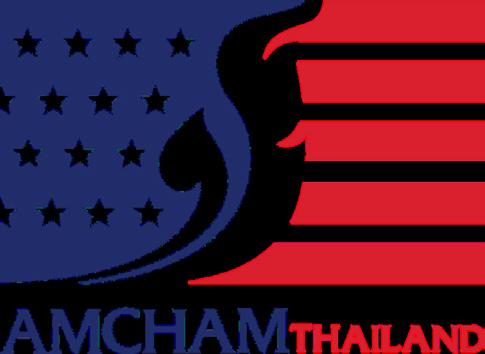
The Chamber is always seeking member submissions for ThaiAmerican Business (T-AB) magazine as well as the AMCHAM website.
Articles should be shared in an editable format accompanied and with any applicable graphics that are 300dpi minimum
Check with the communications team to learn about the theme for our next issue AMCHAM also looks for legal and regulatory developments, knowledge sharing and best practices
Articles should be on topics of general interest with original research or analysis Articles should not be self-promotional or be company member news.
Authors are frequently approached regarding their expertise Be sure to include an author photo and short biography with article submissions.
Please send your article submission for consideration to the communications team before the beginning of the previous month at comm@amchamthailand com